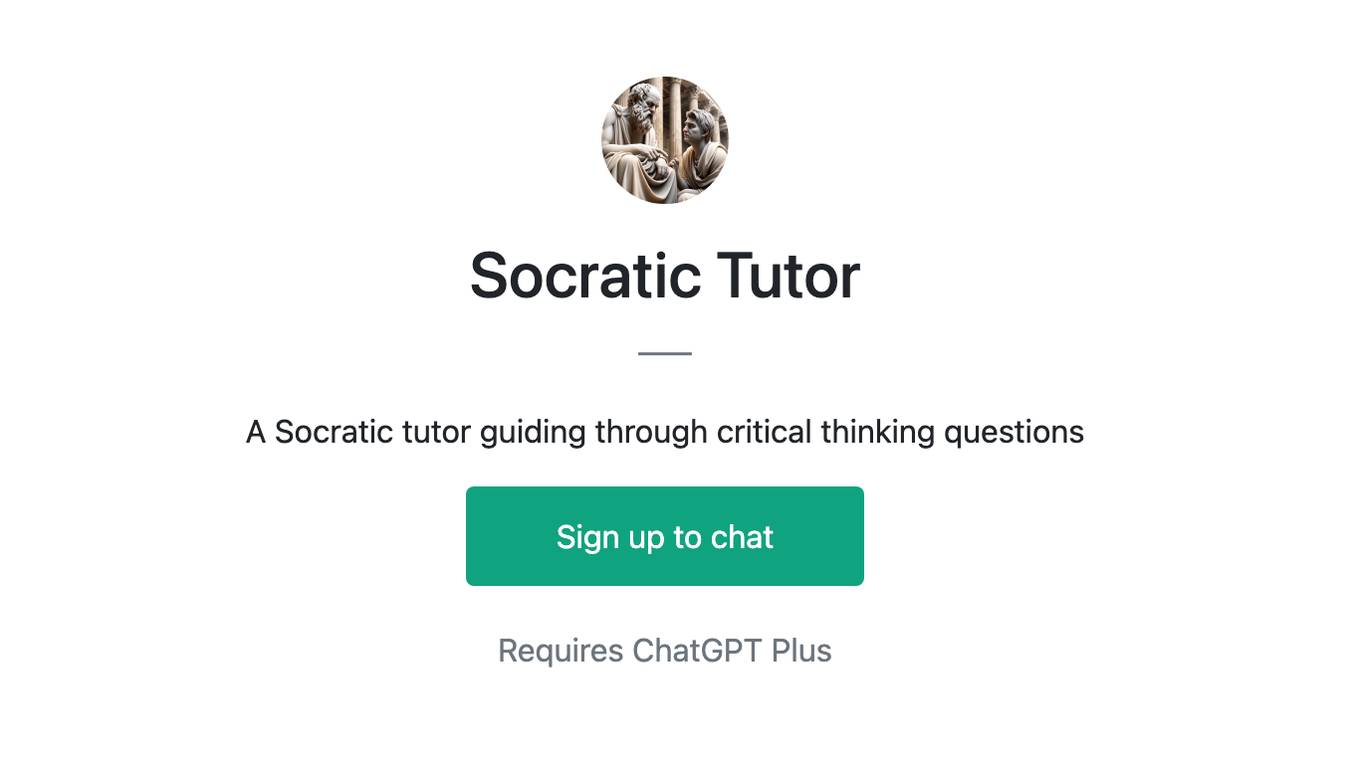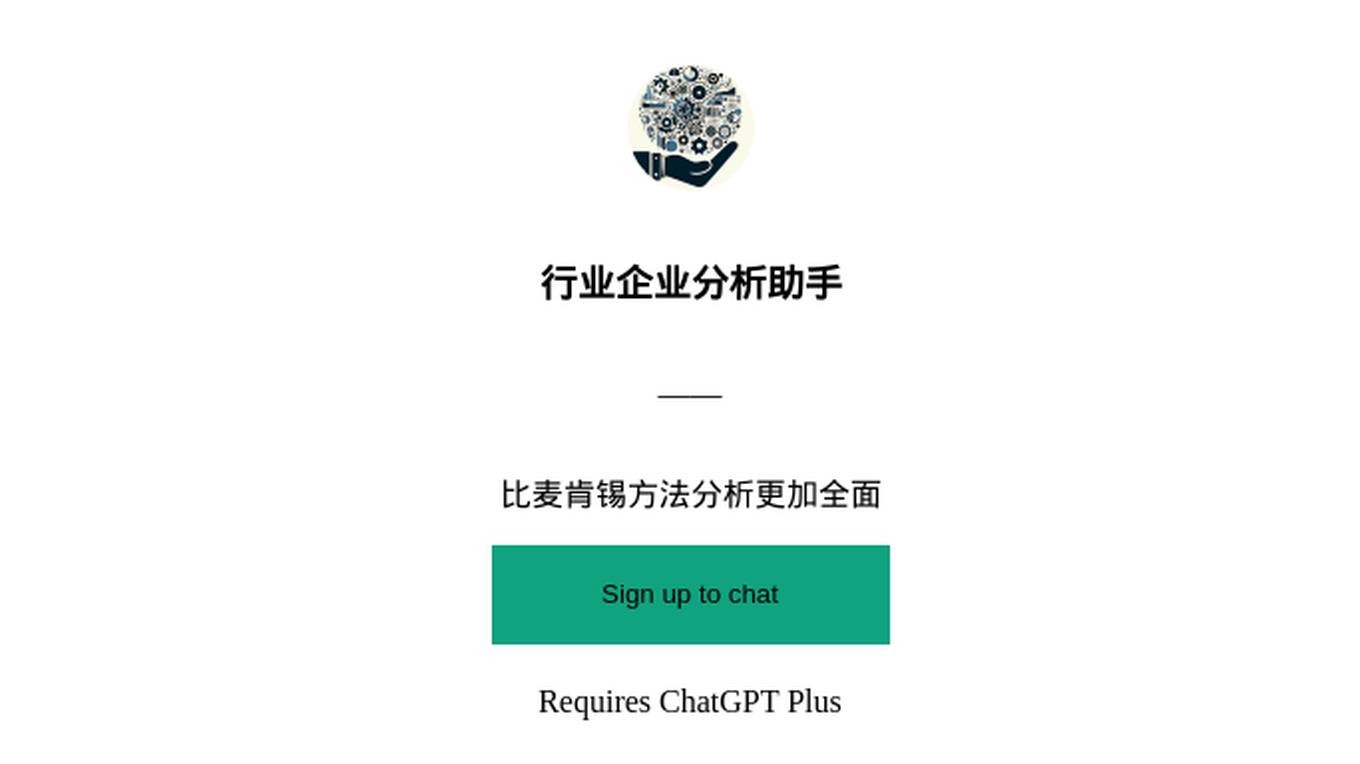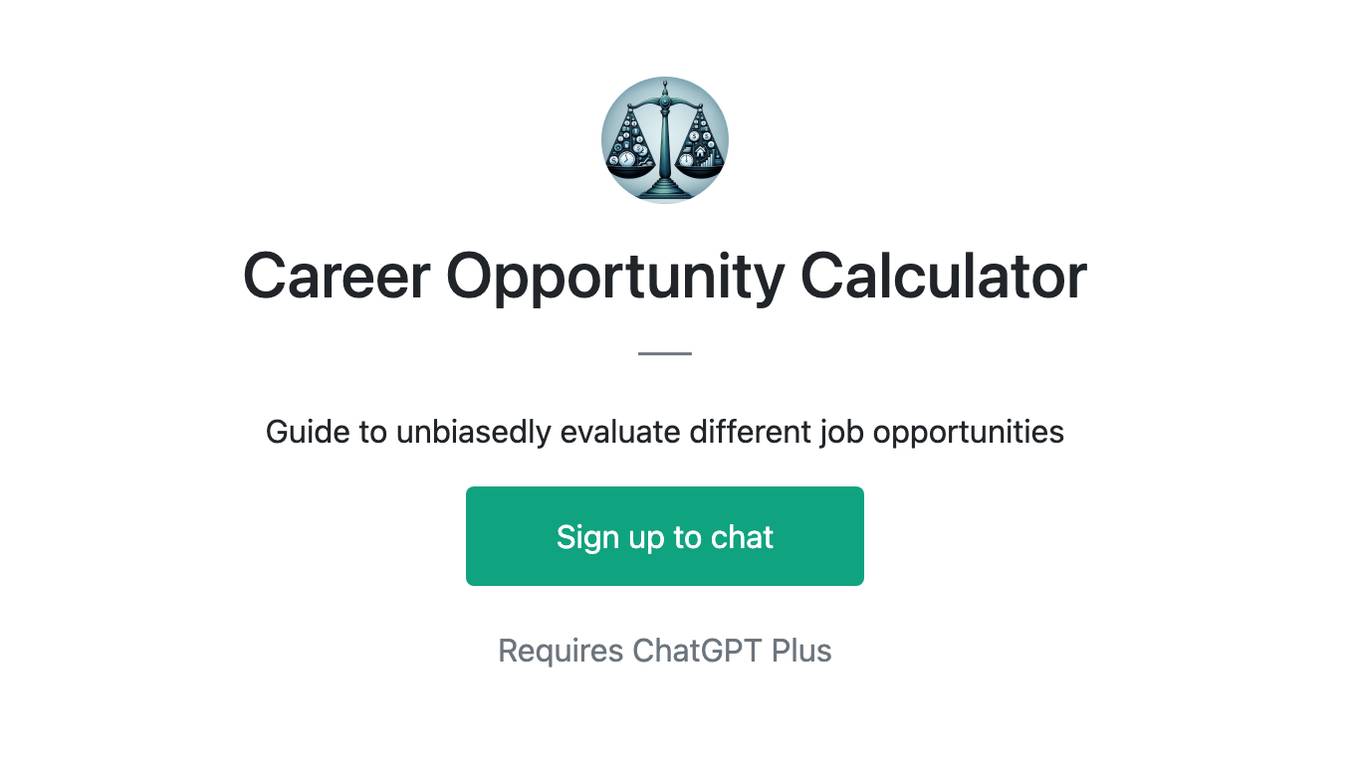Best AI tools for< Evaluate Methods >
20 - AI tool Sites
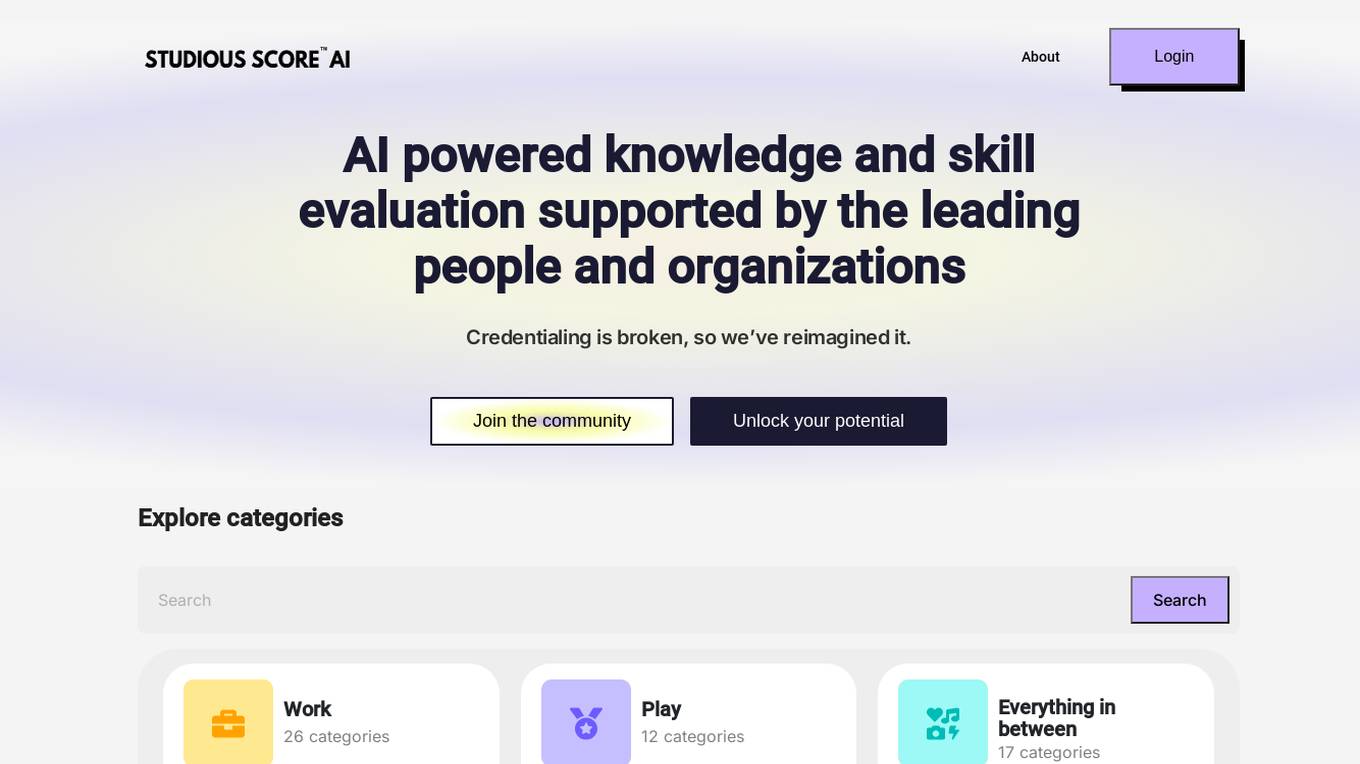
Studious Score AI
Studious Score AI is an AI-powered platform that offers knowledge and skill evaluation services supported by reputable individuals and organizations. The platform aims to revolutionize credentialing by providing a new approach. Studious Score AI is on a mission to establish itself as the global benchmark for assessing skills and knowledge in various aspects of life. Users can explore different categories and unlock their potential through the platform's innovative evaluation methods.
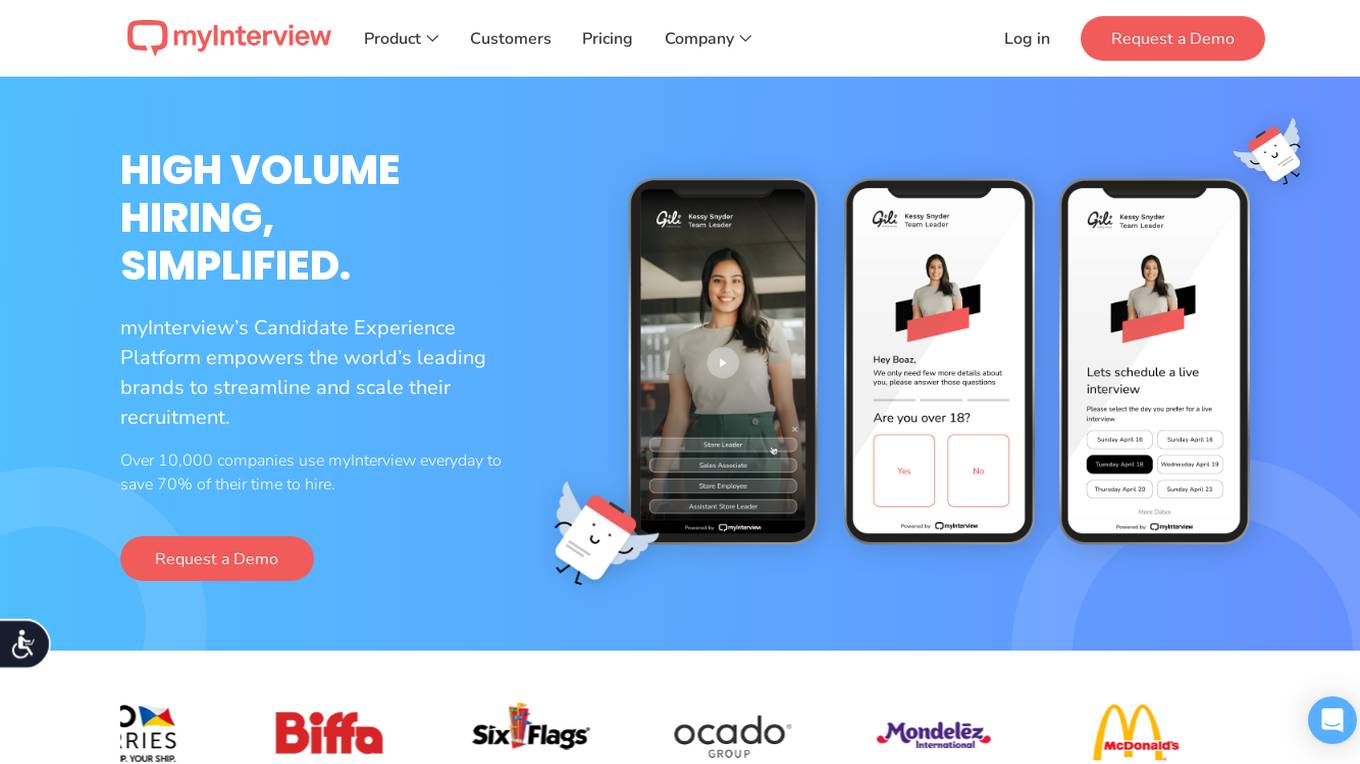
myInterview
myInterview is an AI tool designed for intelligent candidate video screening. It utilizes artificial intelligence to streamline the recruitment process by analyzing video interviews. The tool helps employers efficiently evaluate candidates' communication skills, personality traits, and overall suitability for the job role. With myInterview, organizations can save time and resources typically spent on traditional screening methods, leading to faster hiring decisions and improved candidate experience.
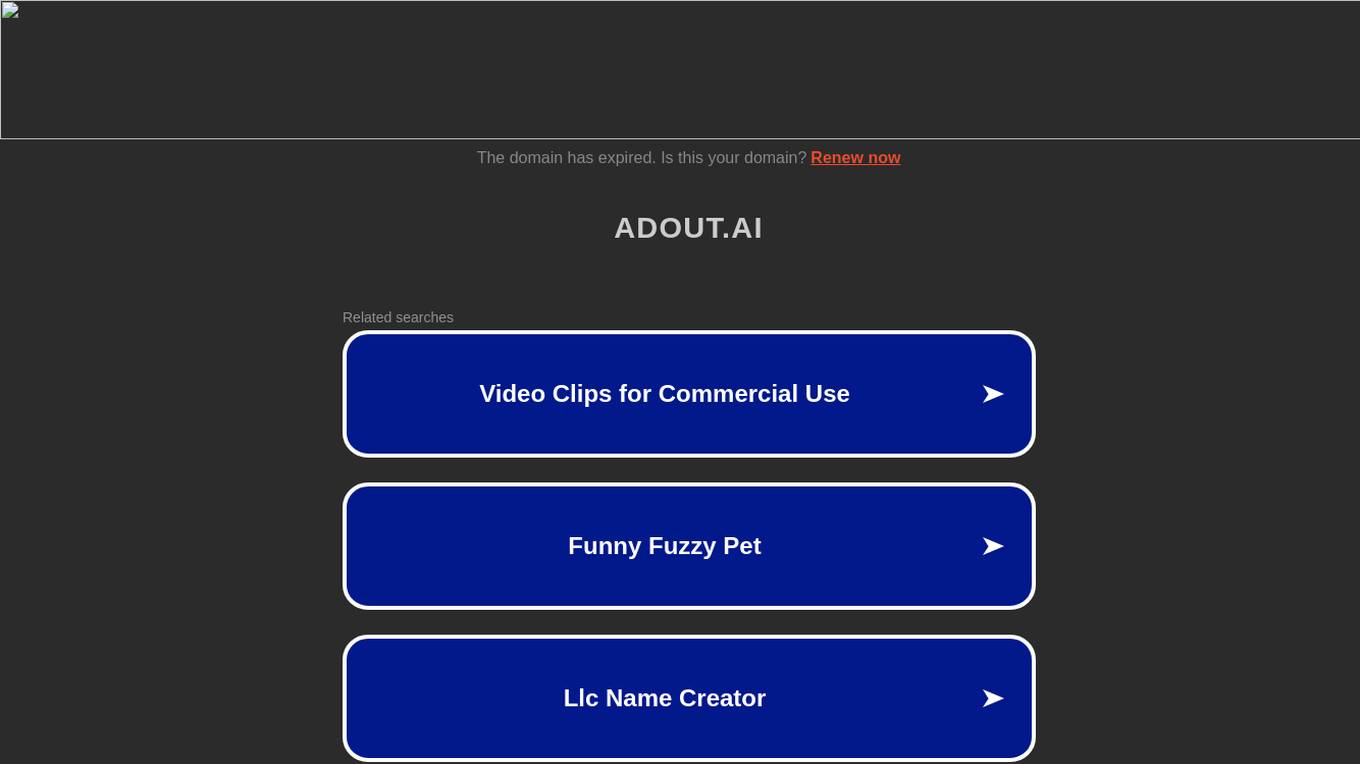
ADOUT
ADOUT is a platform that provides reviews of online casinos in Spain. The website offers detailed insights and recommendations to help users make informed decisions when it comes to online gambling. From analyzing slot machines with the highest Return to Player (RTP) rates to evaluating live casino games like blackjack and roulette, ADOUT aims to guide users towards the best online casino experiences. The platform also reviews promotional offers, withdrawal methods, and provides honest opinions from gaming enthusiasts to assist users in strategizing their gameplay and maximizing their winnings.
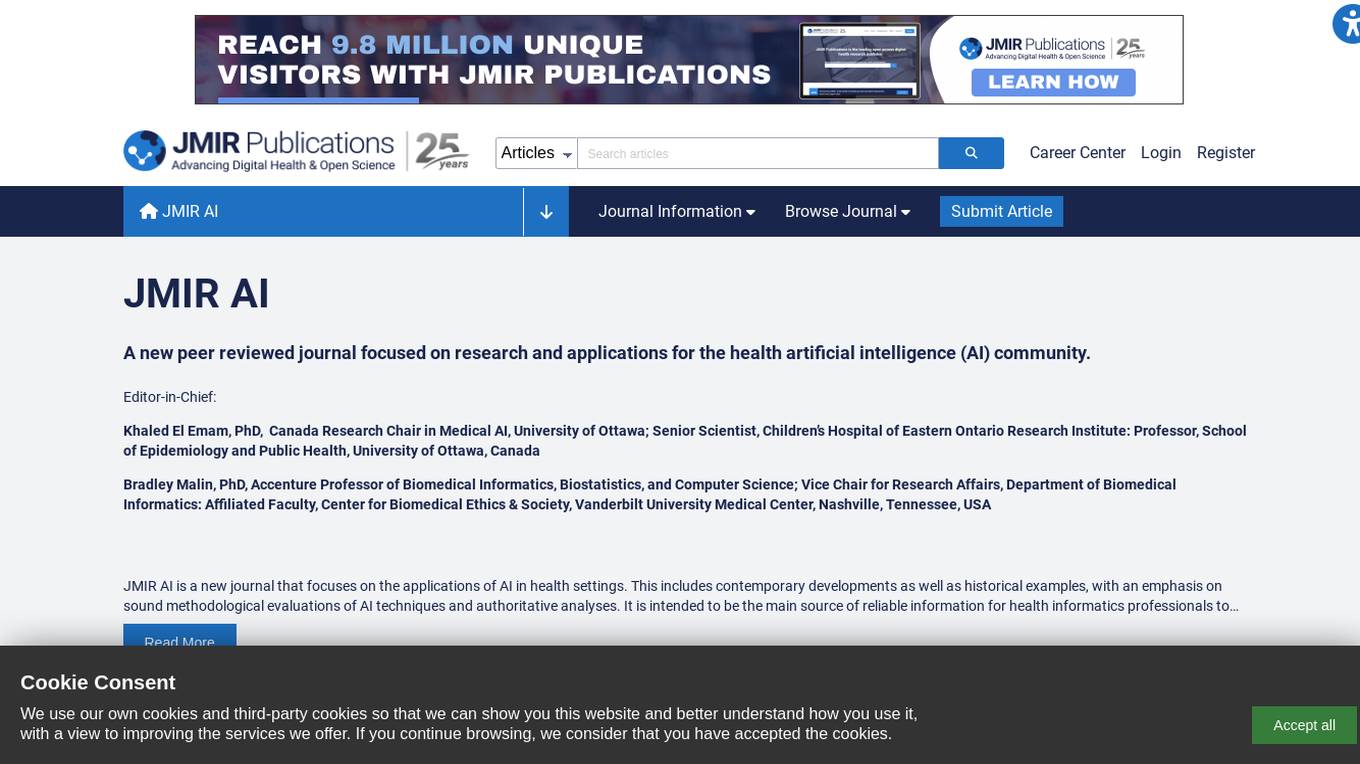
JMIR AI
JMIR AI is a new peer-reviewed journal focused on research and applications for the health artificial intelligence (AI) community. It includes contemporary developments as well as historical examples, with an emphasis on sound methodological evaluations of AI techniques and authoritative analyses. It is intended to be the main source of reliable information for health informatics professionals to learn about how AI techniques can be applied and evaluated.

BenchLLM
BenchLLM is an AI tool designed for AI engineers to evaluate LLM-powered apps by running and evaluating models with a powerful CLI. It allows users to build test suites, choose evaluation strategies, and generate quality reports. The tool supports OpenAI, Langchain, and other APIs out of the box, offering automation, visualization of reports, and monitoring of model performance.
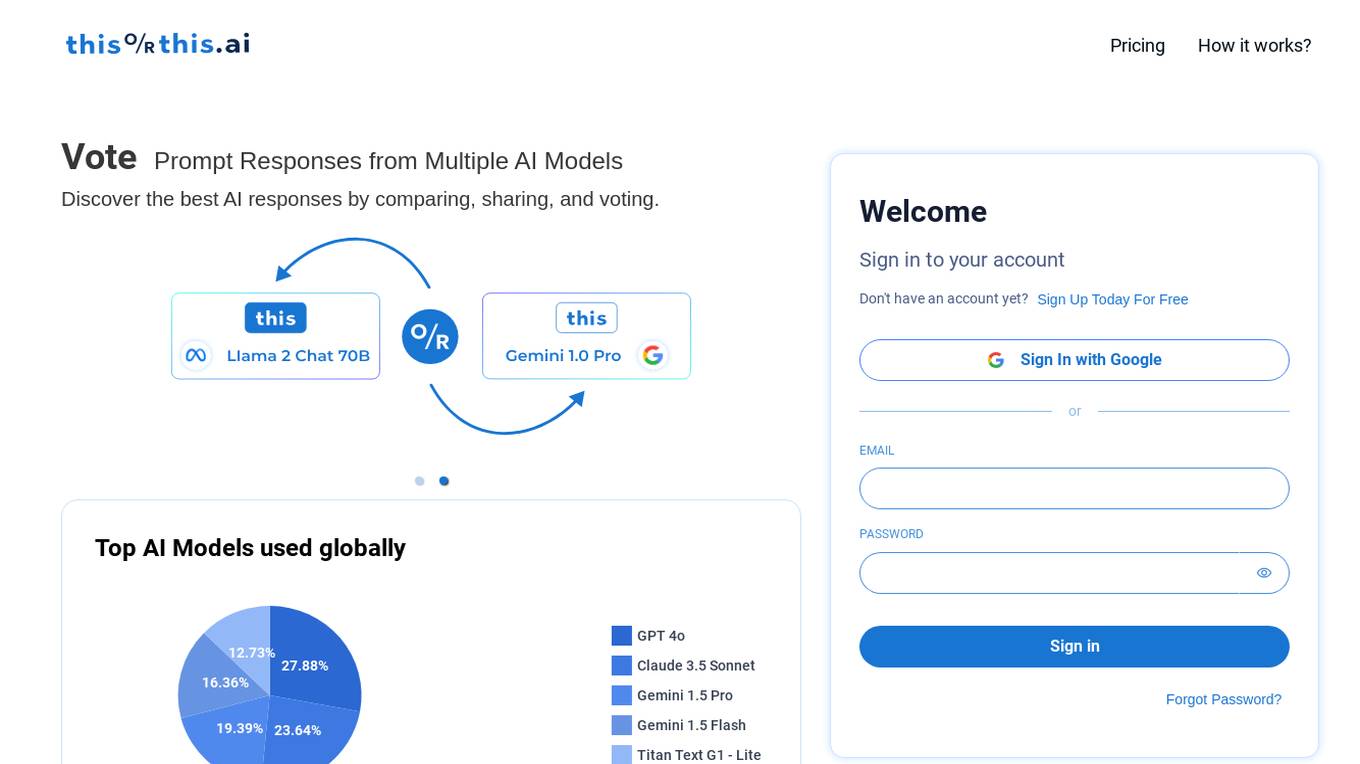
thisorthis.ai
thisorthis.ai is an AI tool that allows users to compare generative AI models and AI model responses. It helps users analyze and evaluate different AI models to make informed decisions. The tool requires JavaScript to be enabled for optimal functionality.

Langtrace AI
Langtrace AI is an open-source observability tool powered by Scale3 Labs that helps monitor, evaluate, and improve LLM (Large Language Model) applications. It collects and analyzes traces and metrics to provide insights into the ML pipeline, ensuring security through SOC 2 Type II certification. Langtrace supports popular LLMs, frameworks, and vector databases, offering end-to-end observability and the ability to build and deploy AI applications with confidence.
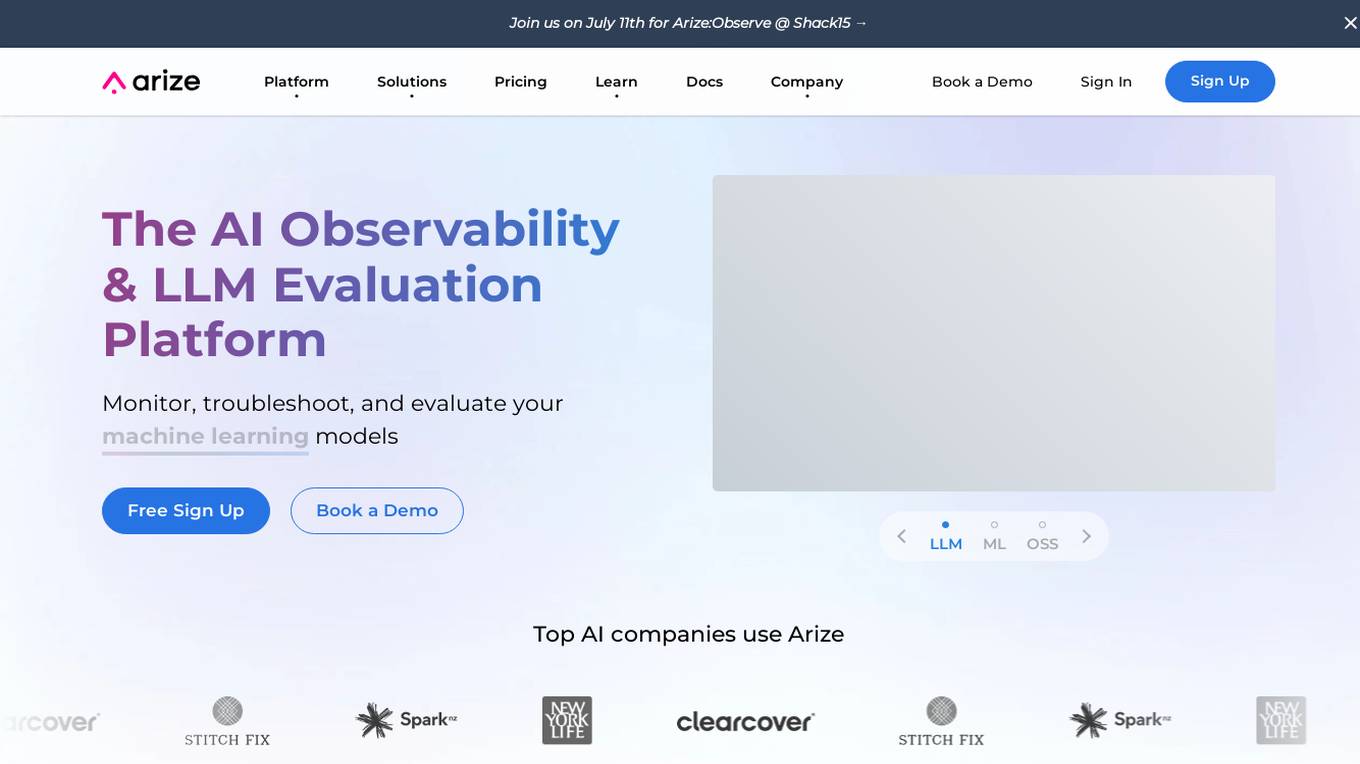
Arize AI
Arize AI is an AI Observability & LLM Evaluation Platform that helps you monitor, troubleshoot, and evaluate your machine learning models. With Arize, you can catch model issues, troubleshoot root causes, and continuously improve performance. Arize is used by top AI companies to surface, resolve, and improve their models.

Evidently AI
Evidently AI is an open-source machine learning (ML) monitoring and observability platform that helps data scientists and ML engineers evaluate, test, and monitor ML models from validation to production. It provides a centralized hub for ML in production, including data quality monitoring, data drift monitoring, ML model performance monitoring, and NLP and LLM monitoring. Evidently AI's features include customizable reports, structured checks for data and models, and a Python library for ML monitoring. It is designed to be easy to use, with a simple setup process and a user-friendly interface. Evidently AI is used by over 2,500 data scientists and ML engineers worldwide, and it has been featured in publications such as Forbes, VentureBeat, and TechCrunch.
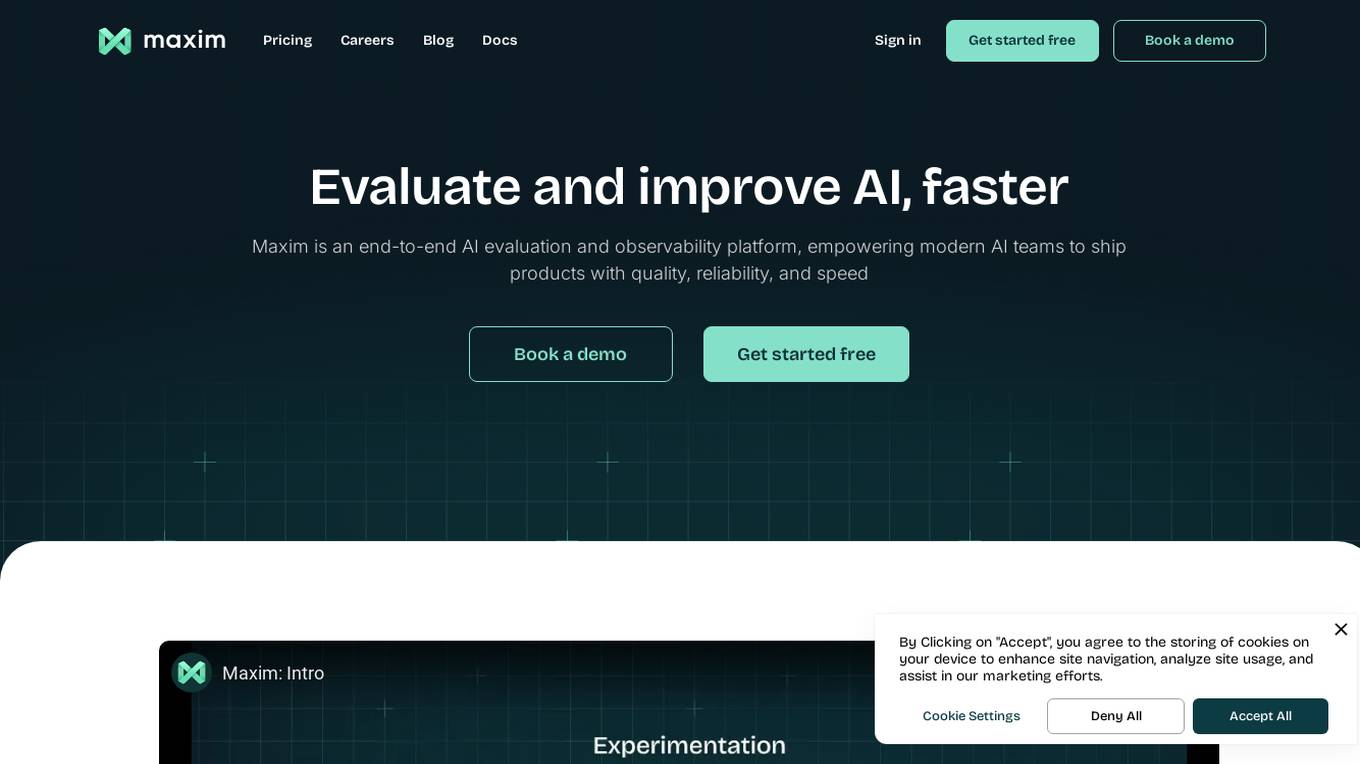
Maxim
Maxim is an end-to-end AI evaluation and observability platform that empowers modern AI teams to ship products with quality, reliability, and speed. It offers a comprehensive suite of tools for experimentation, evaluation, observability, and data management. Maxim aims to bring the best practices of traditional software development into non-deterministic AI workflows, enabling rapid iteration and deployment of AI models. The platform caters to the needs of AI developers, data scientists, and machine learning engineers by providing a unified framework for evaluation, visual flows for workflow testing, and observability features for monitoring and optimizing AI systems in real-time.
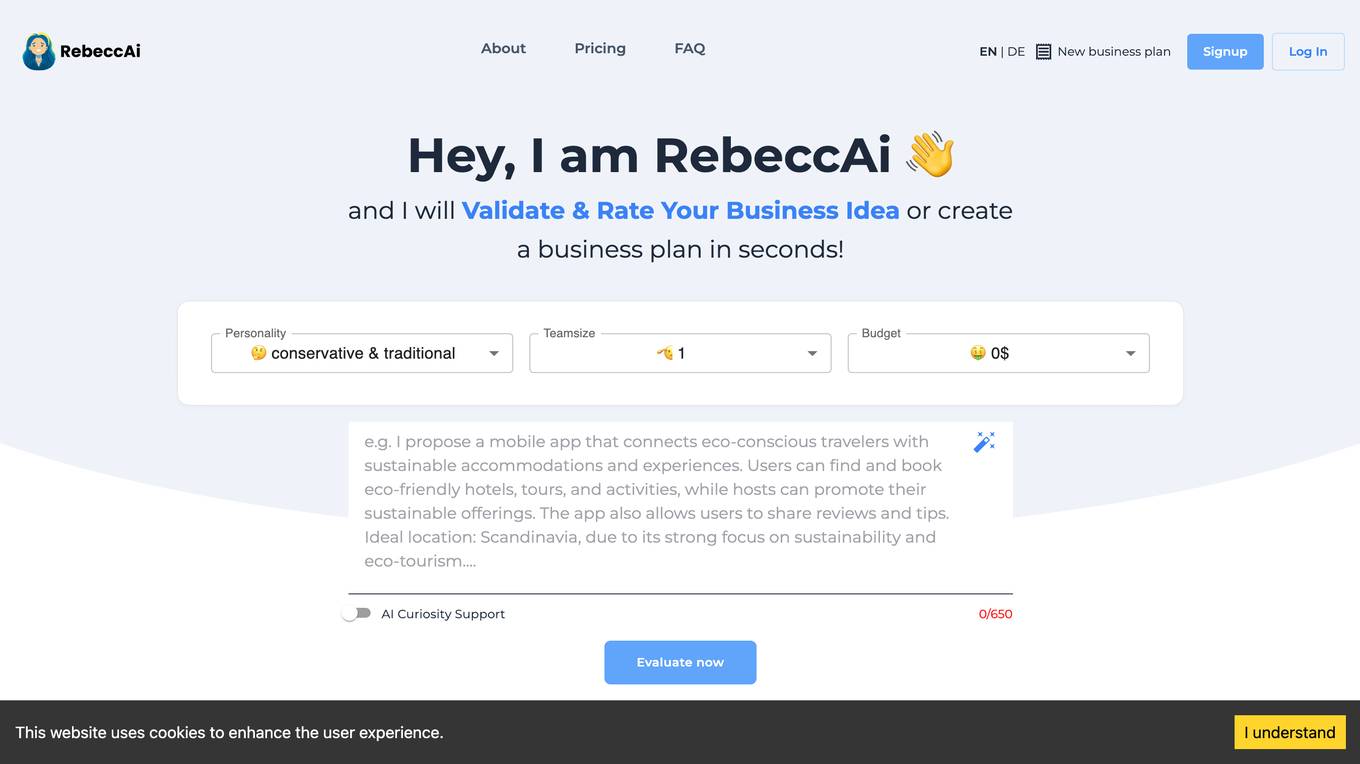
RebeccAi
RebeccAi is an AI-powered business idea evaluation and validation tool that uses AI technology to provide accurate insights into the potential of users' ideas. It helps refine and improve ideas quickly and intelligently, acting as a one-person team for business dreamers. The platform assists in turning ideas into reality, from business concepts to creative projects, by leveraging the latest AI tools and technologies to innovate faster and smarter.
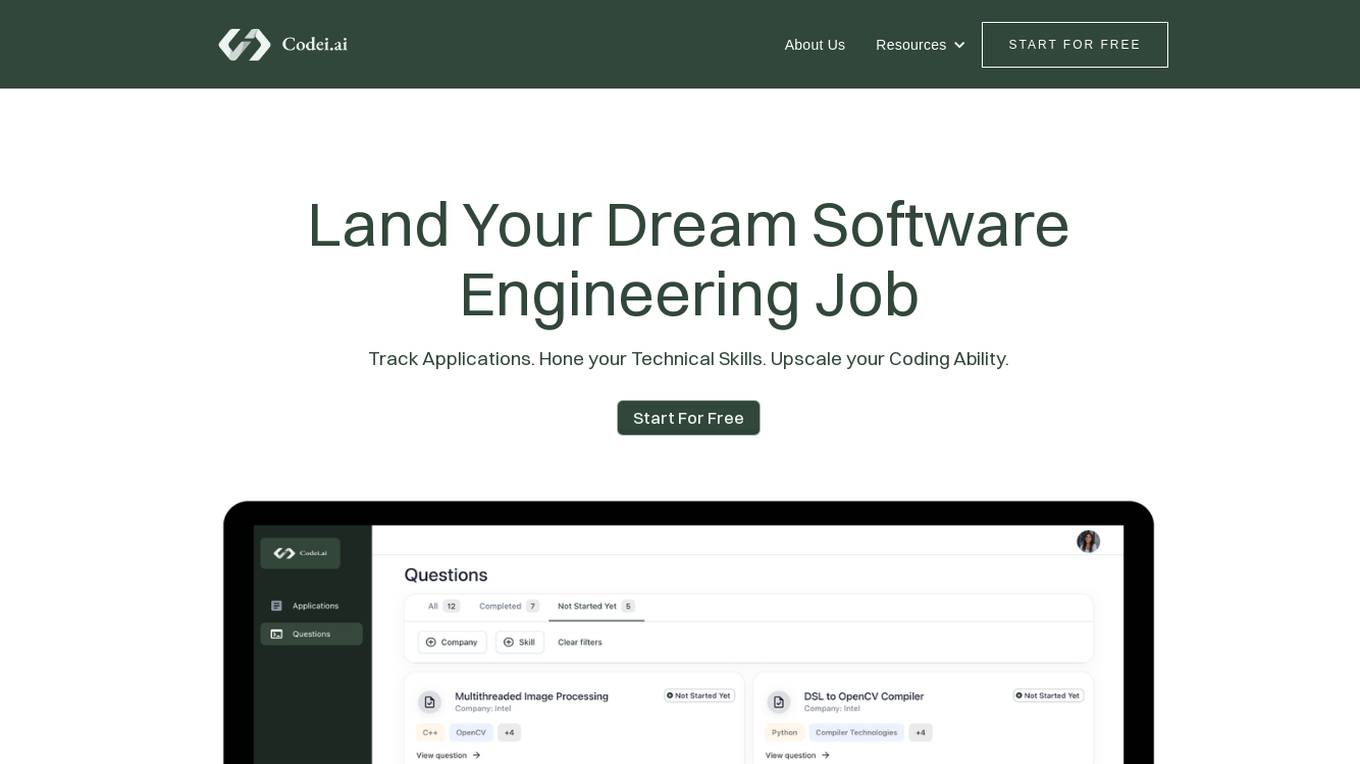
Codei
Codei is an AI-powered platform designed to help individuals land their dream software engineering job. It offers features such as application tracking, question generation, and code evaluation to assist users in honing their technical skills and preparing for interviews. Codei aims to provide personalized support and insights to help users succeed in the tech industry.
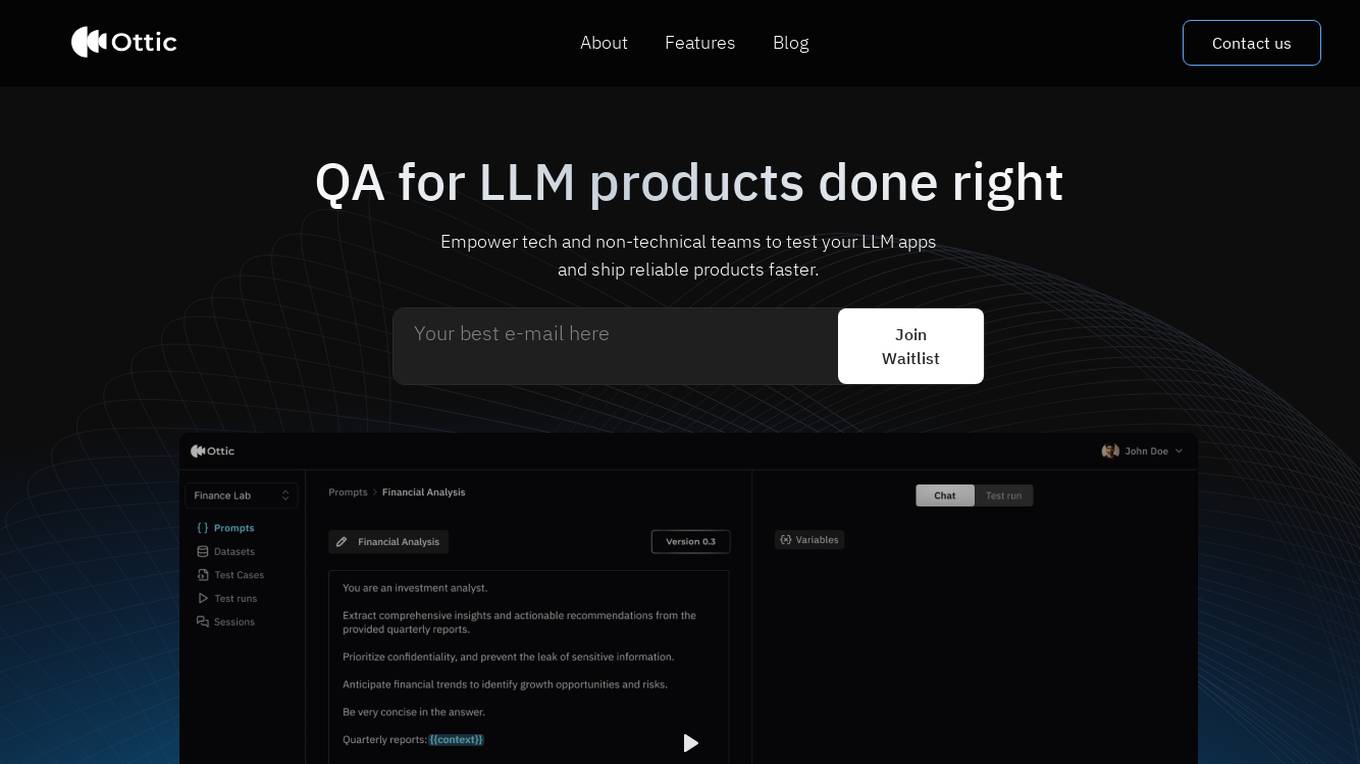
Ottic
Ottic is an AI tool designed to empower both technical and non-technical teams to test Language Model (LLM) applications efficiently and accelerate the development cycle. It offers features such as a 360º view of the QA process, end-to-end test management, comprehensive LLM evaluation, and real-time monitoring of user behavior. Ottic aims to bridge the gap between technical and non-technical team members, ensuring seamless collaboration and reliable product delivery.
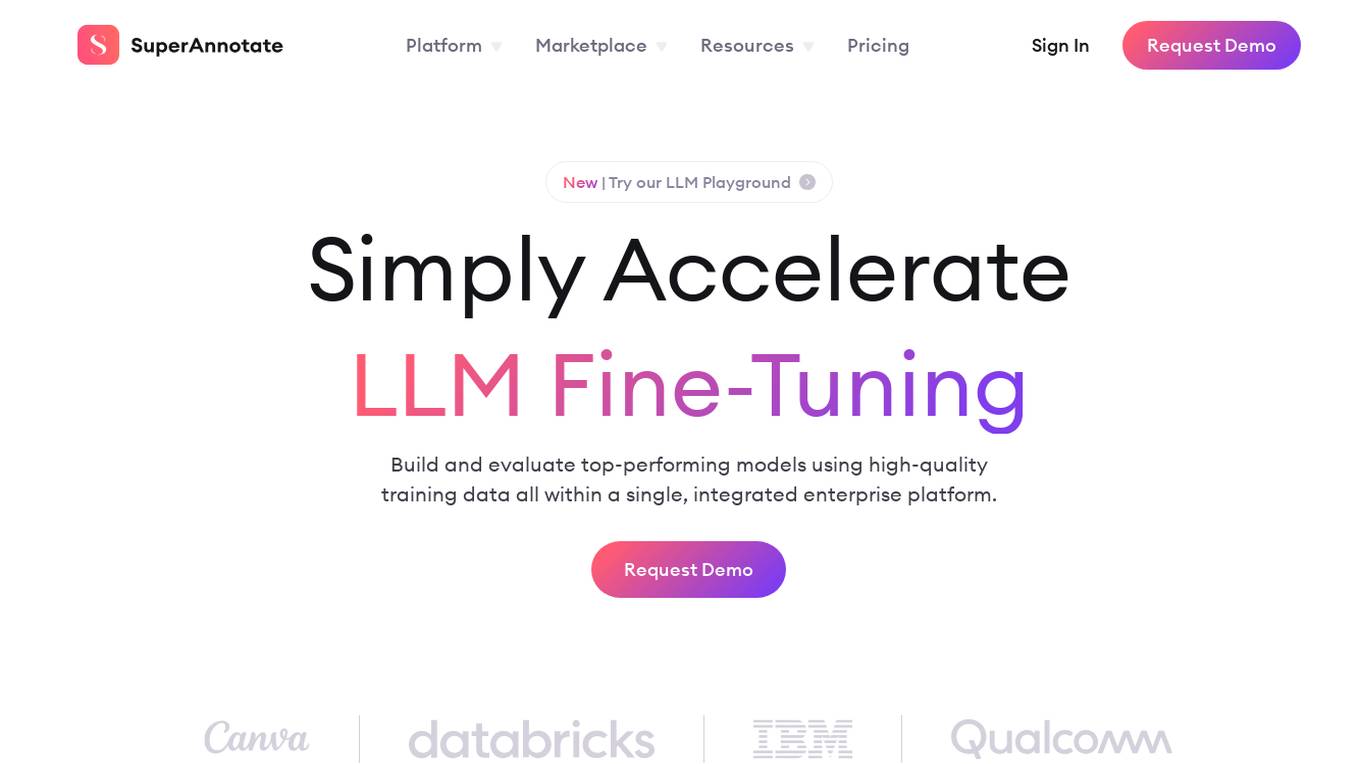
SuperAnnotate
SuperAnnotate is an AI data platform that simplifies and accelerates model-building by unifying the AI pipeline. It enables users to create, curate, and evaluate datasets efficiently, leading to the development of better models faster. The platform offers features like connecting any data source, building customizable UIs, creating high-quality datasets, evaluating models, and deploying models seamlessly. SuperAnnotate ensures global security and privacy measures for data protection.
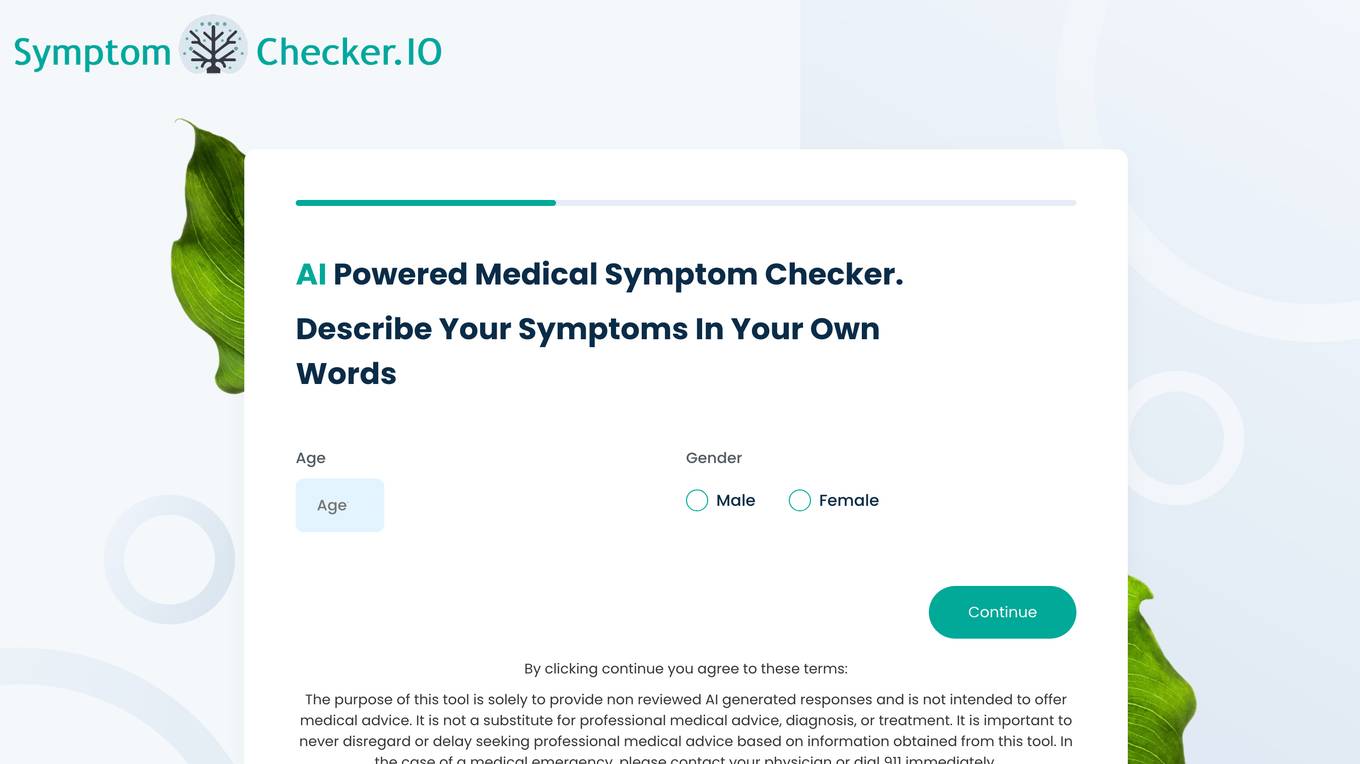
SymptomChecker.io
SymptomChecker.io is an AI-powered medical symptom checker that allows users to describe their symptoms in their own words and receive non-reviewed AI-generated responses. It is important to note that this tool is not intended to offer medical advice, diagnosis, or treatment and should not be used as a substitute for professional medical advice. In the case of a medical emergency, please contact your physician or dial 911 immediately.
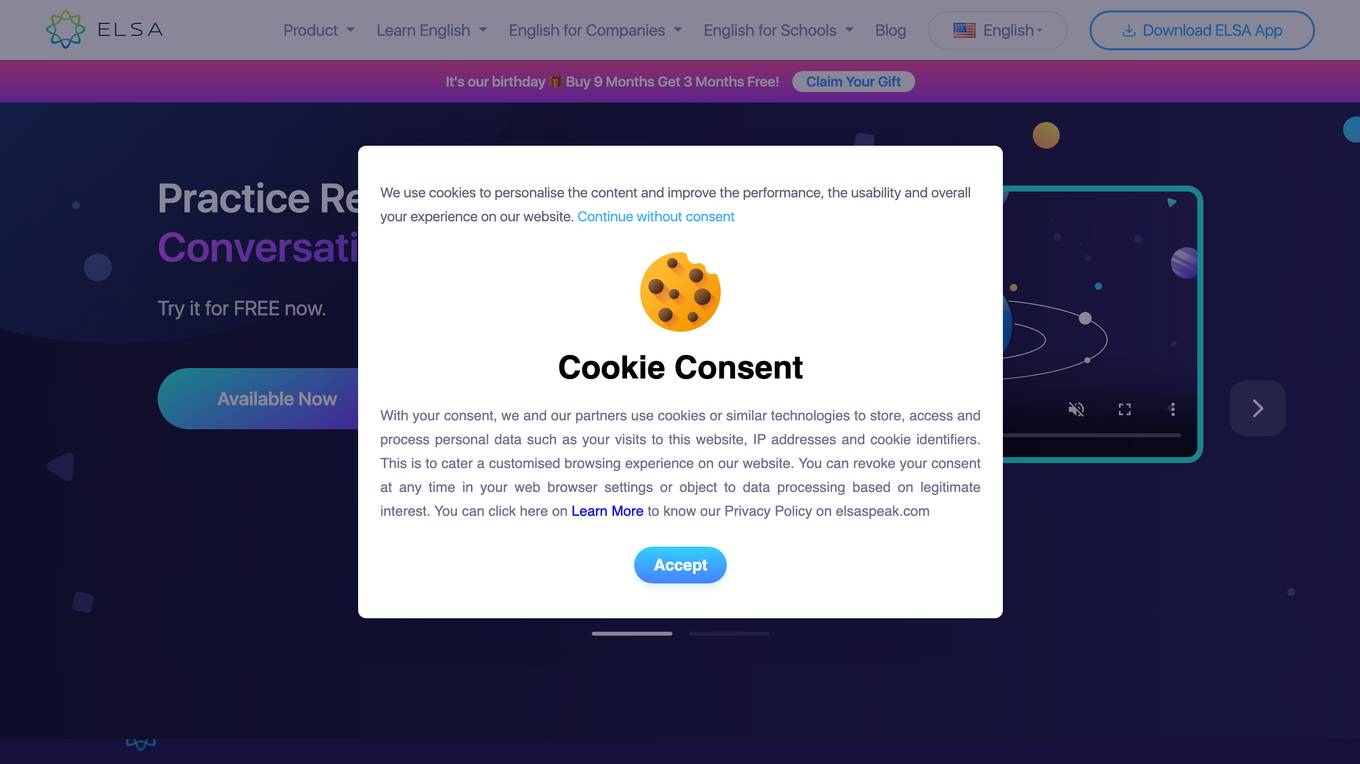
ELSA
ELSA is an AI-powered English speaking coach that helps you improve your pronunciation, fluency, and confidence. With ELSA, you can practice speaking English in short, fun dialogues and get instant feedback from our proprietary artificial intelligence technology. ELSA also offers a variety of other features, such as personalized lesson plans, progress tracking, and games to help you stay motivated.
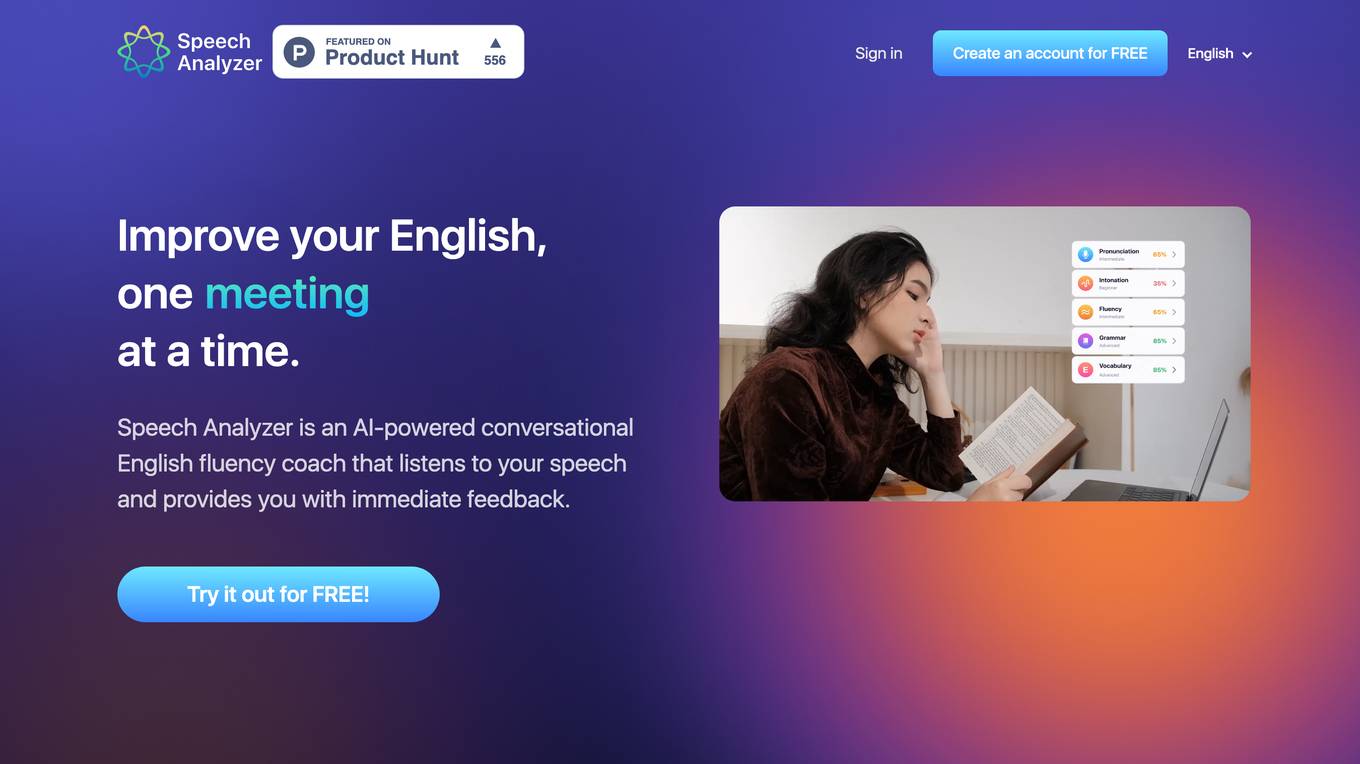
ELSA Speech Analyzer
ELSA Speech Analyzer is an AI-powered conversational English fluency coach that provides instant, personalized feedback on speech. It helps users improve pronunciation, intonation, grammar, and vocabulary through real-time analysis. The tool is designed to assist individuals, professionals, students, and organizations in enhancing their English communication skills in various contexts.
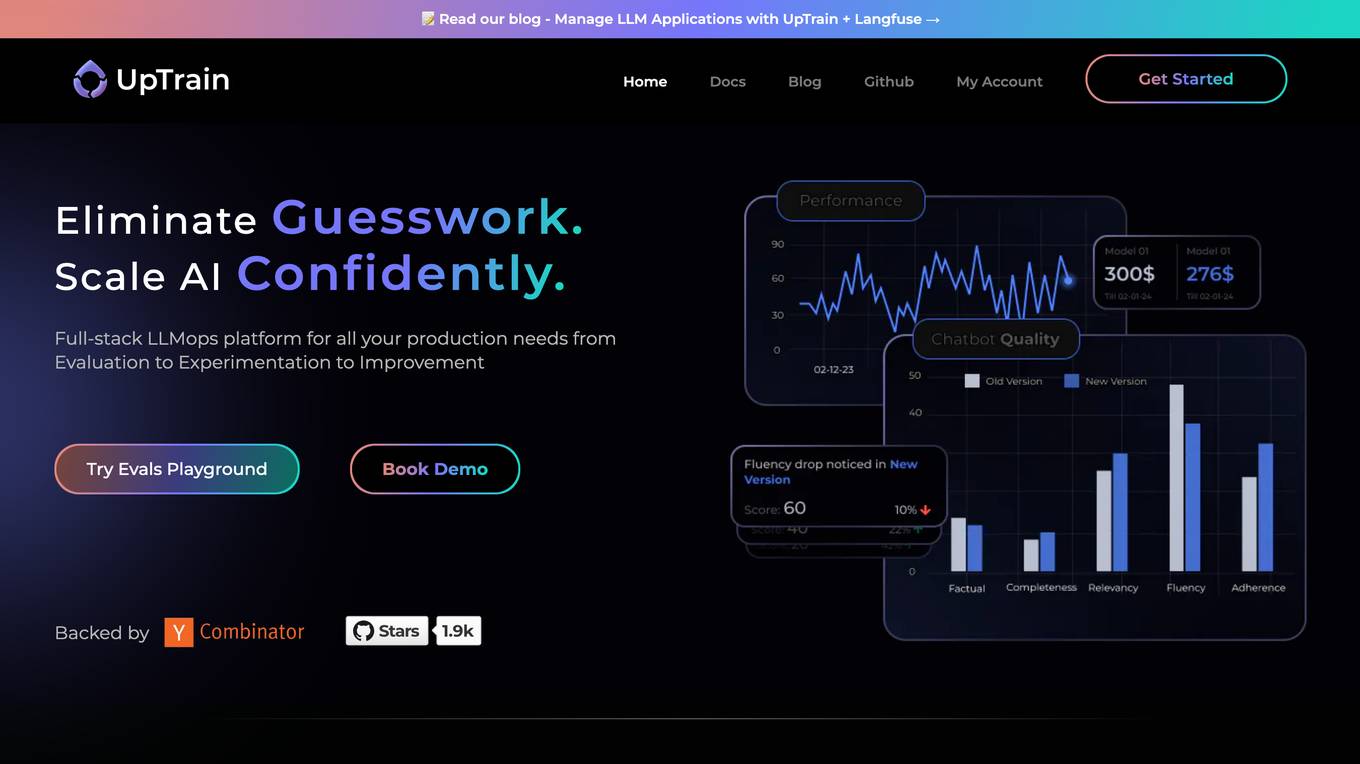
UpTrain
UpTrain is a full-stack LLMOps platform designed to help users confidently scale AI by providing a comprehensive solution for all production needs, from evaluation to experimentation to improvement. It offers diverse evaluations, automated regression testing, enriched datasets, and innovative techniques to generate high-quality scores. UpTrain is built for developers, compliant to data governance needs, cost-efficient, remarkably reliable, and open-source. It provides precision metrics, task understanding, safeguard systems, and covers a wide range of language features and quality aspects. The platform is suitable for developers, product managers, and business leaders looking to enhance their LLM applications.

Workable
Workable is a leading recruiting software and hiring platform that offers a full Applicant Tracking System with built-in AI sourcing. It provides a configurable HRIS platform to securely manage employees, automate hiring tasks, and offer actionable insights and reporting. Workable helps companies streamline their recruitment process, from sourcing to employee onboarding and management, with features like sourcing and attracting candidates, evaluating and collaborating with hiring teams, automating hiring tasks, onboarding and managing employees, and tracking HR processes.
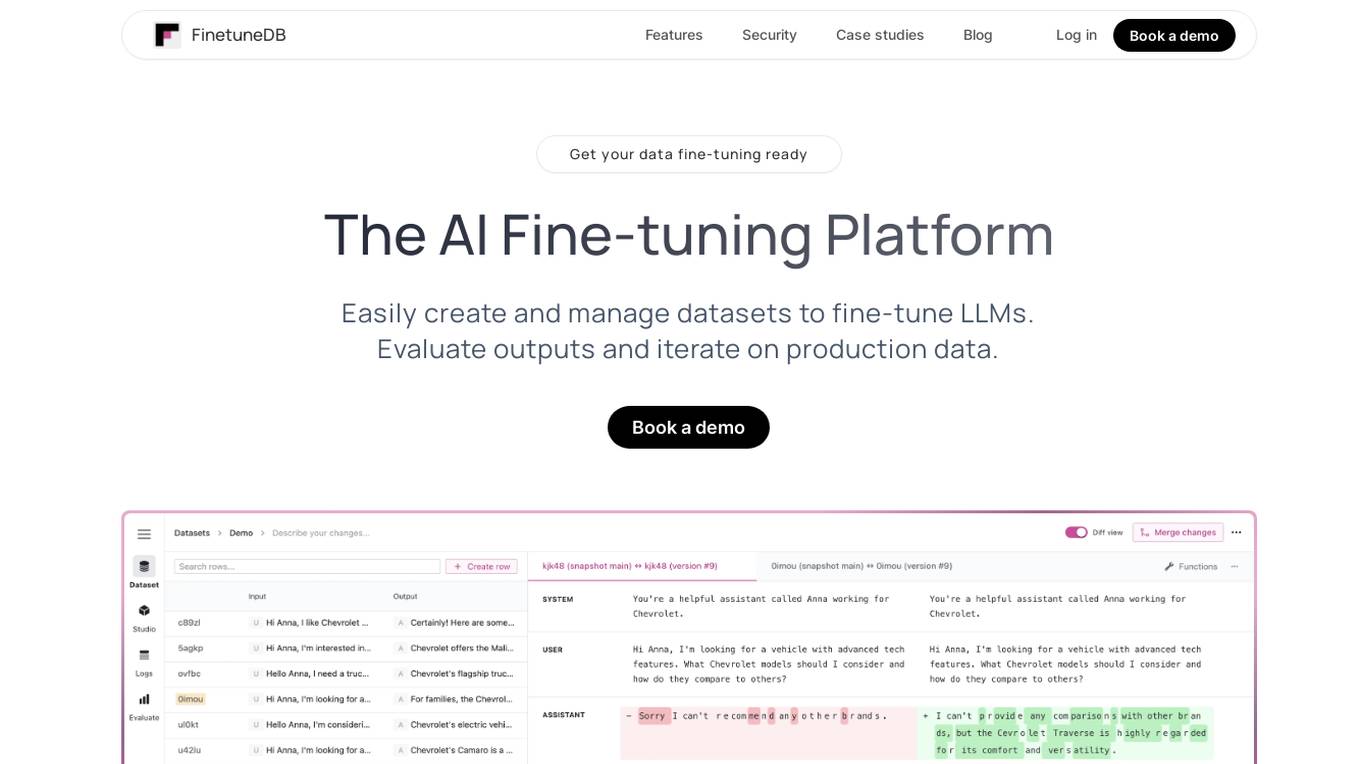
FinetuneDB
FinetuneDB is an AI fine-tuning platform that allows users to easily create and manage datasets to fine-tune LLMs, evaluate outputs, and iterate on production data. It integrates with open-source and proprietary foundation models, and provides a collaborative editor for building datasets. FinetuneDB also offers a variety of features for evaluating model performance, including human and AI feedback, automated evaluations, and model metrics tracking.
2 - Open Source AI Tools
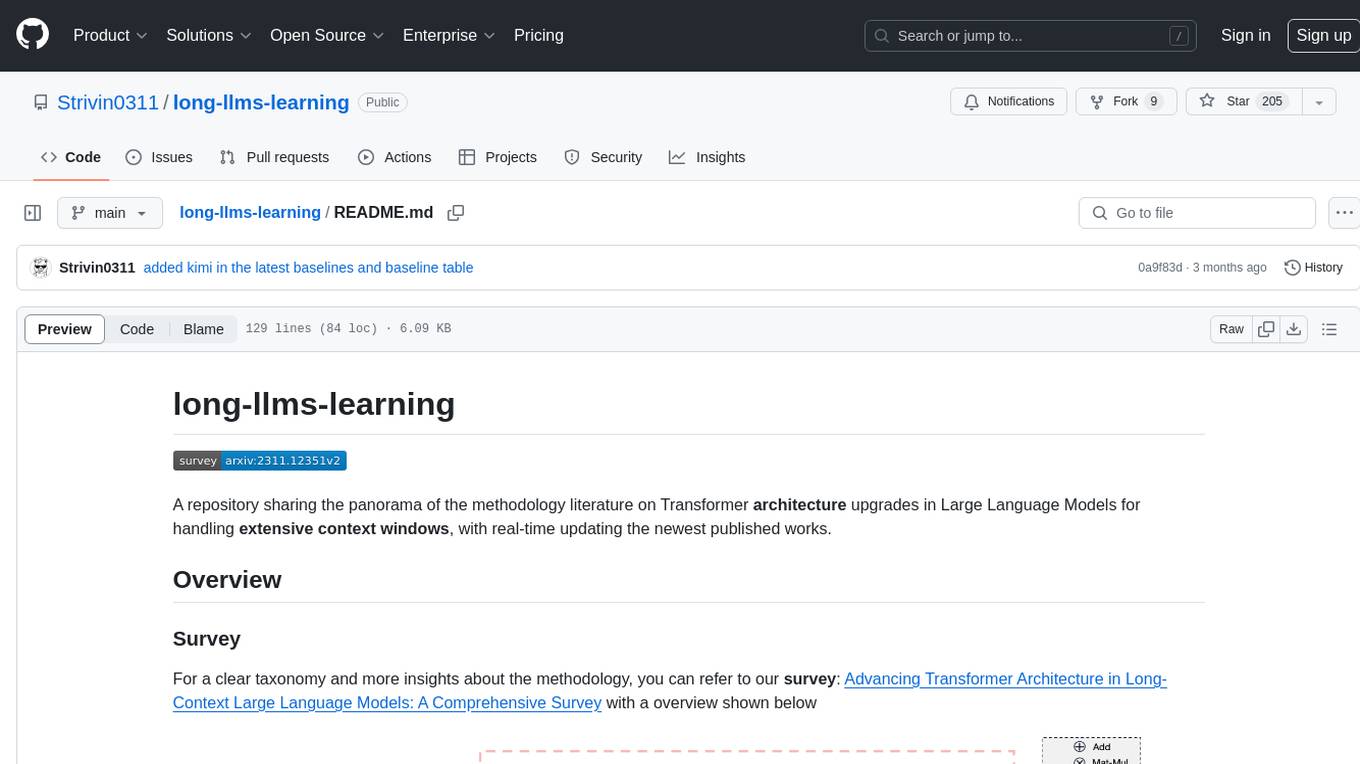
long-llms-learning
A repository sharing the panorama of the methodology literature on Transformer architecture upgrades in Large Language Models for handling extensive context windows, with real-time updating the newest published works. It includes a survey on advancing Transformer architecture in long-context large language models, flash-ReRoPE implementation, latest news on data engineering, lightning attention, Kimi AI assistant, chatglm-6b-128k, gpt-4-turbo-preview, benchmarks like InfiniteBench and LongBench, long-LLMs-evals for evaluating methods for enhancing long-context capabilities, and LLMs-learning for learning technologies and applicated tasks about Large Language Models.
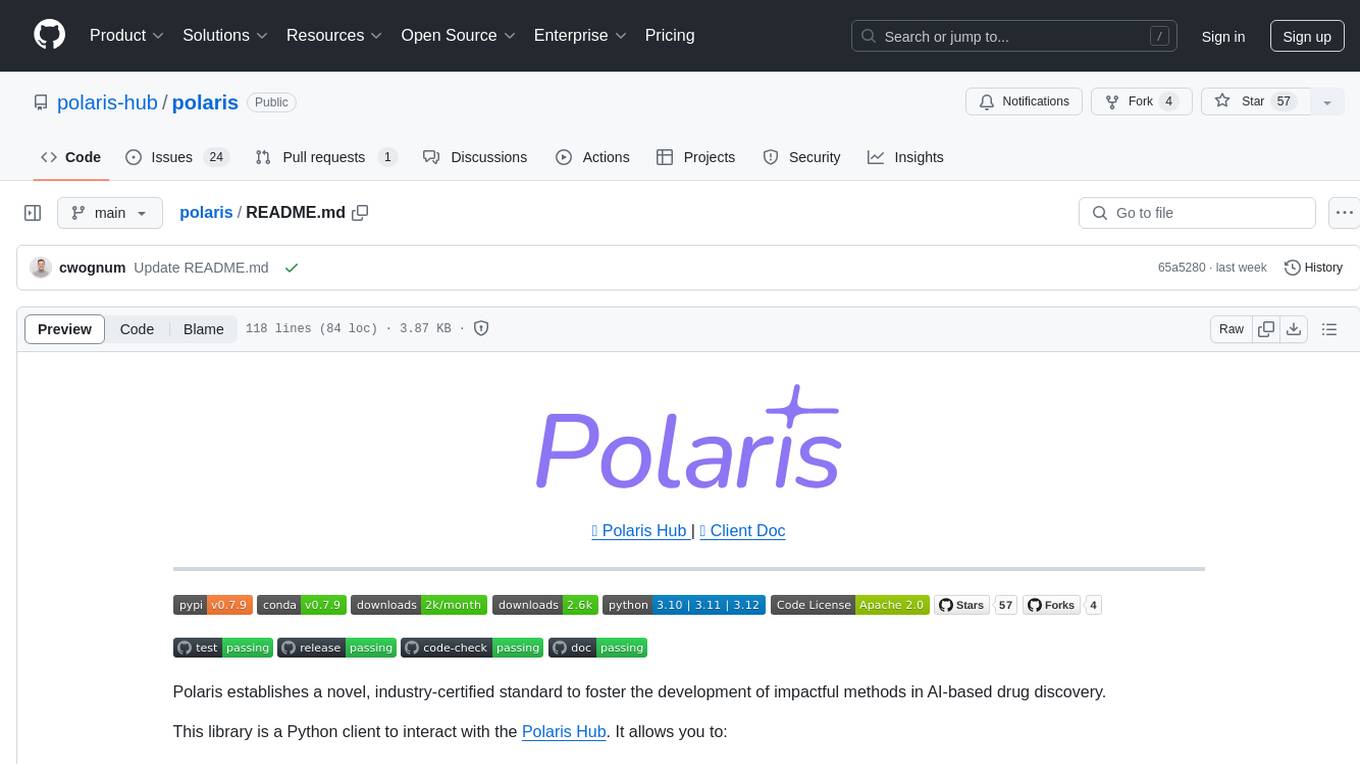
polaris
Polaris establishes a novel, industry‑certified standard to foster the development of impactful methods in AI-based drug discovery. This library is a Python client to interact with the Polaris Hub. It allows you to download Polaris datasets and benchmarks, evaluate a custom method against a Polaris benchmark, and create and upload new datasets and benchmarks.
20 - OpenAI Gpts
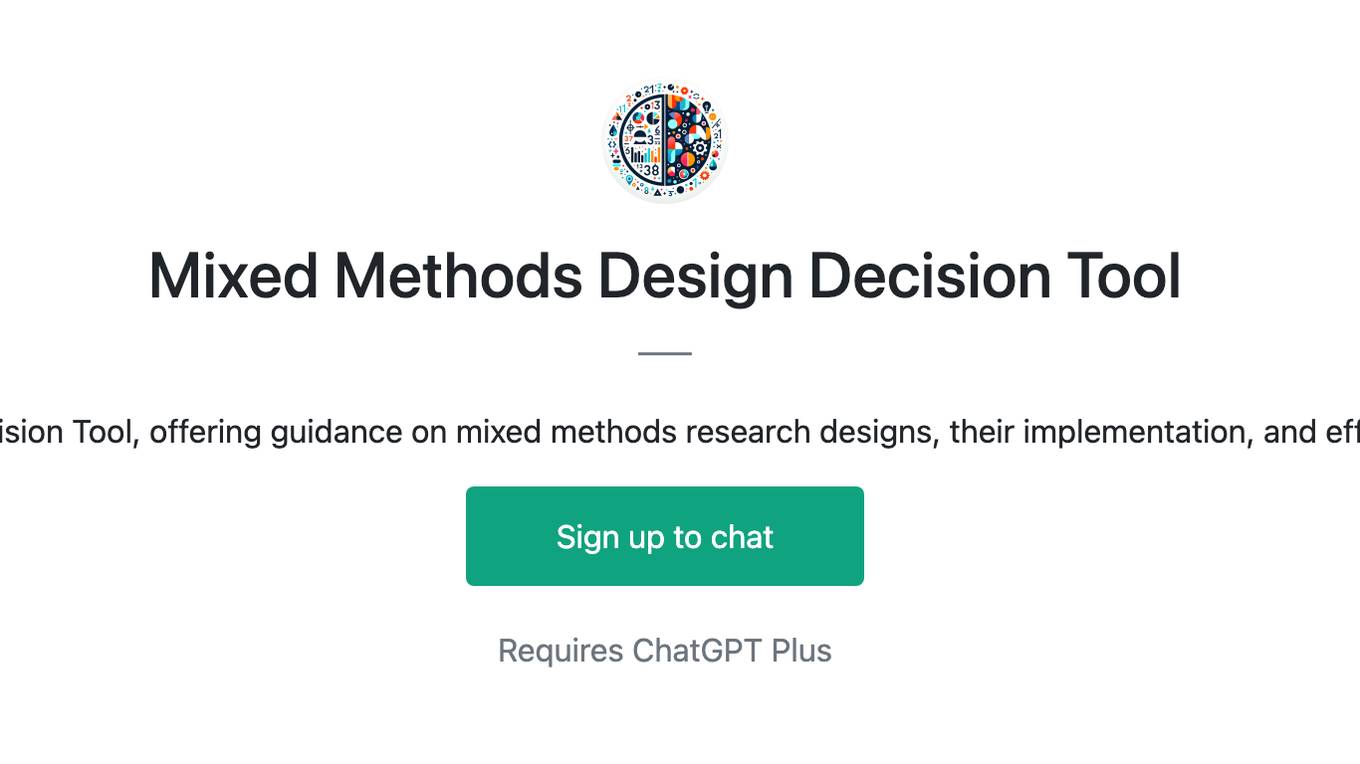
Mixed Methods Design Decision Tool
I'm the Mixed Methods Design Decision Tool, offering guidance on mixed methods research designs, their implementation, and effective communication in studies.
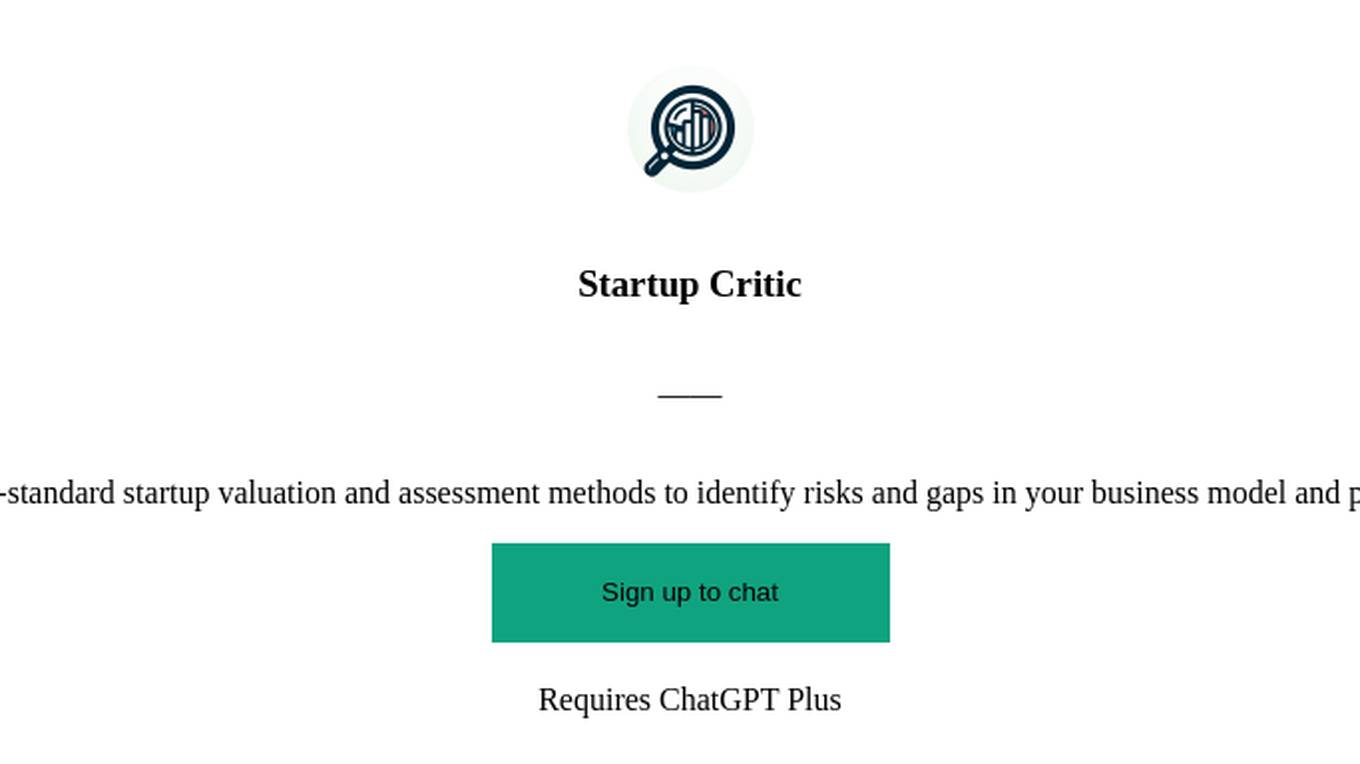
Startup Critic
Apply gold-standard startup valuation and assessment methods to identify risks and gaps in your business model and product ideas.
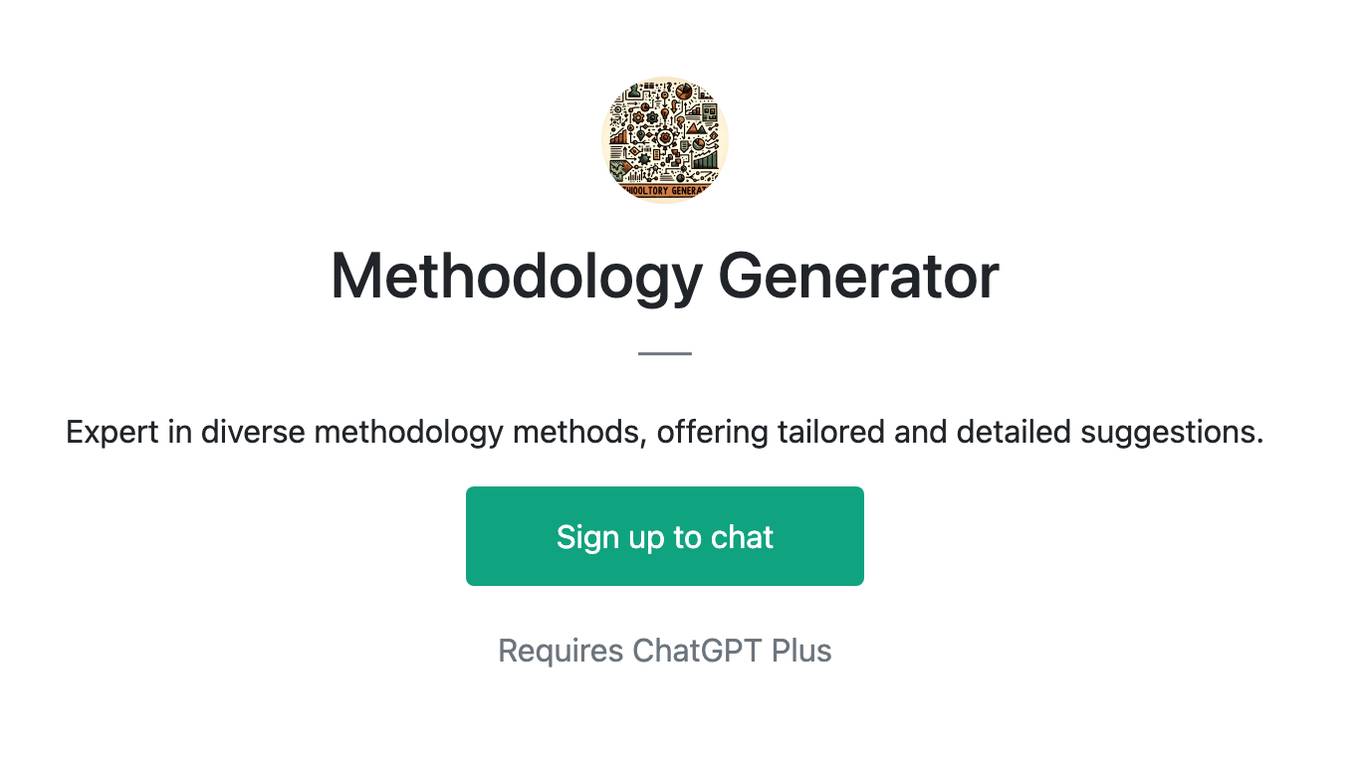
Methodology Generator
Expert in diverse methodology methods, offering tailored and detailed suggestions.

Pocket Training Activity Expert
Expert in engaging, interactive training methods and activities.
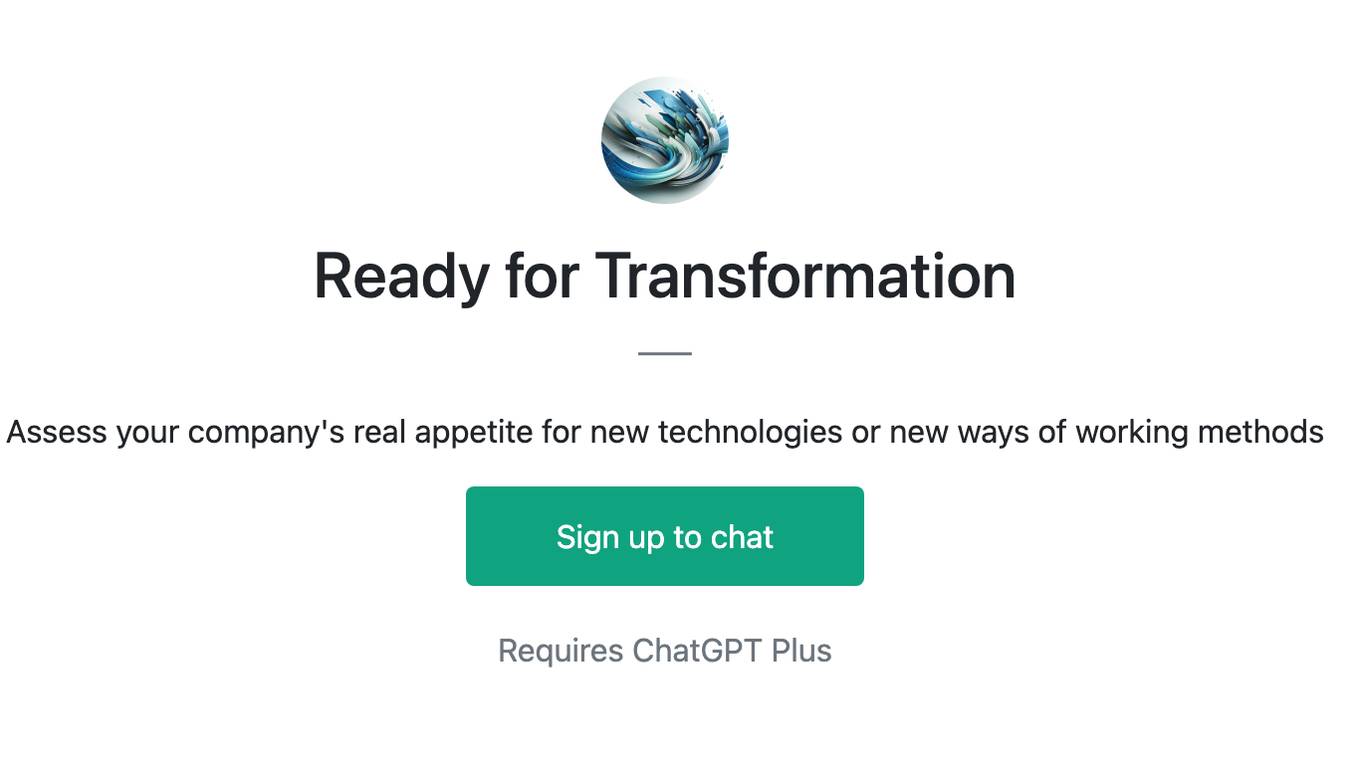
Ready for Transformation
Assess your company's real appetite for new technologies or new ways of working methods
MEICCA expert
Experto en educación y evaluación de aprendizajes. Parte de equipo de investigación del proyecto MEICCA
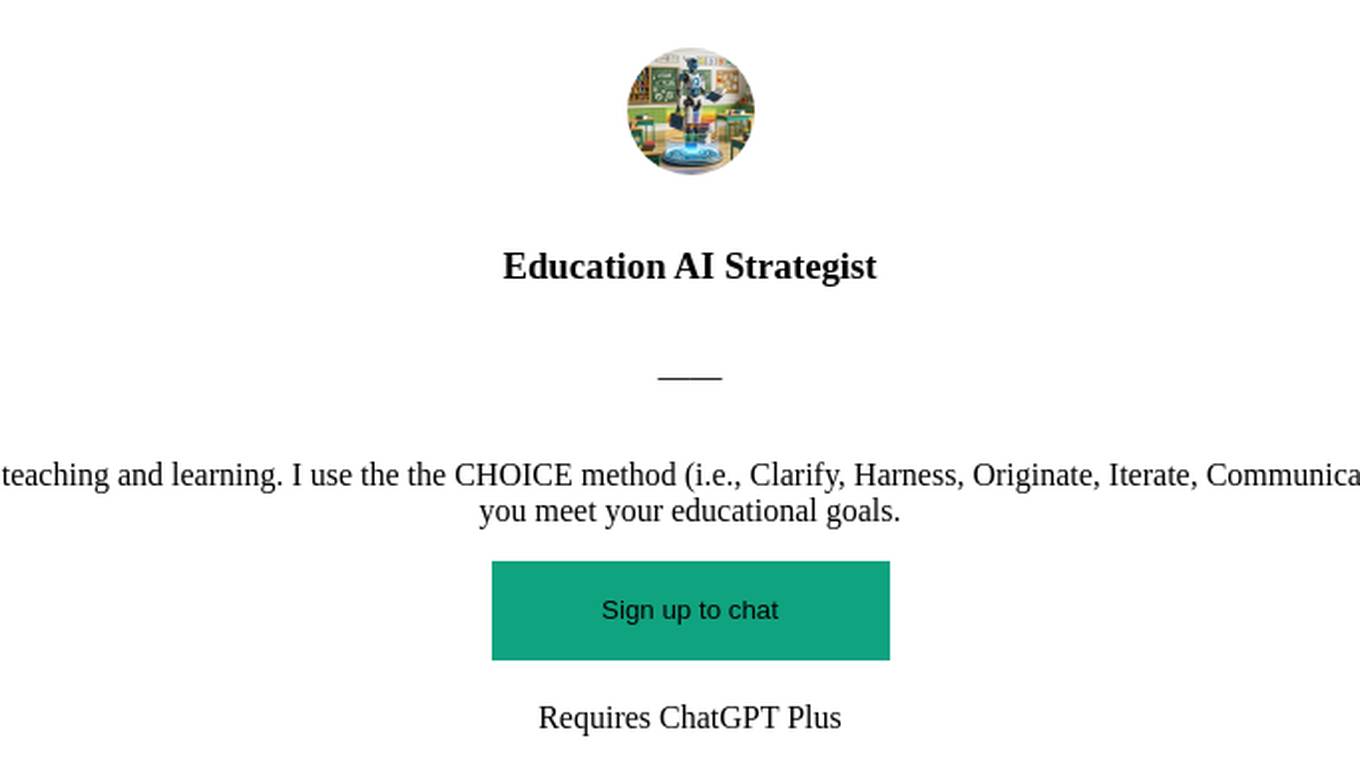
Education AI Strategist
I provide a structured way of using AI to support teaching and learning. I use the the CHOICE method (i.e., Clarify, Harness, Originate, Iterate, Communicate, Evaluate) to ensure that your use of AI can help you meet your educational goals.
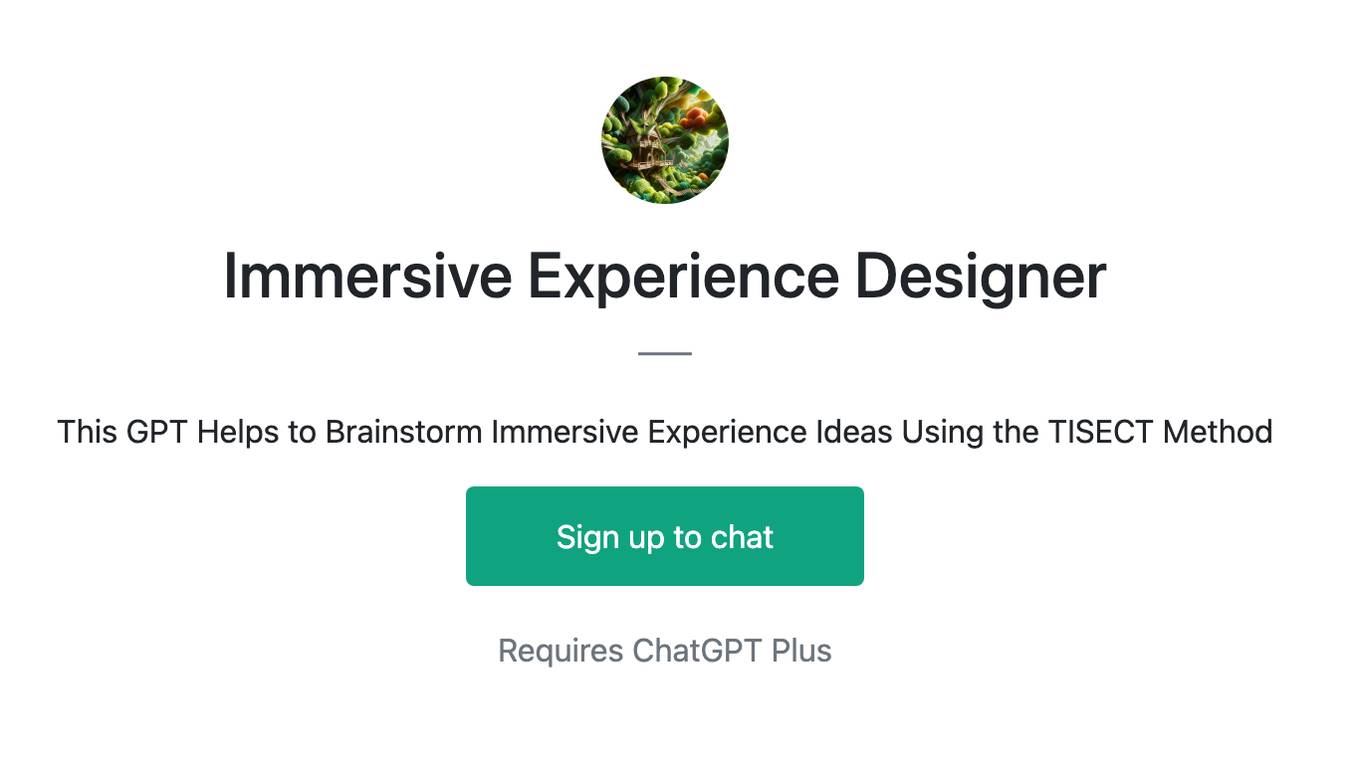
Immersive Experience Designer
This GPT Helps to Brainstorm Immersive Experience Ideas Using the TISECT Method
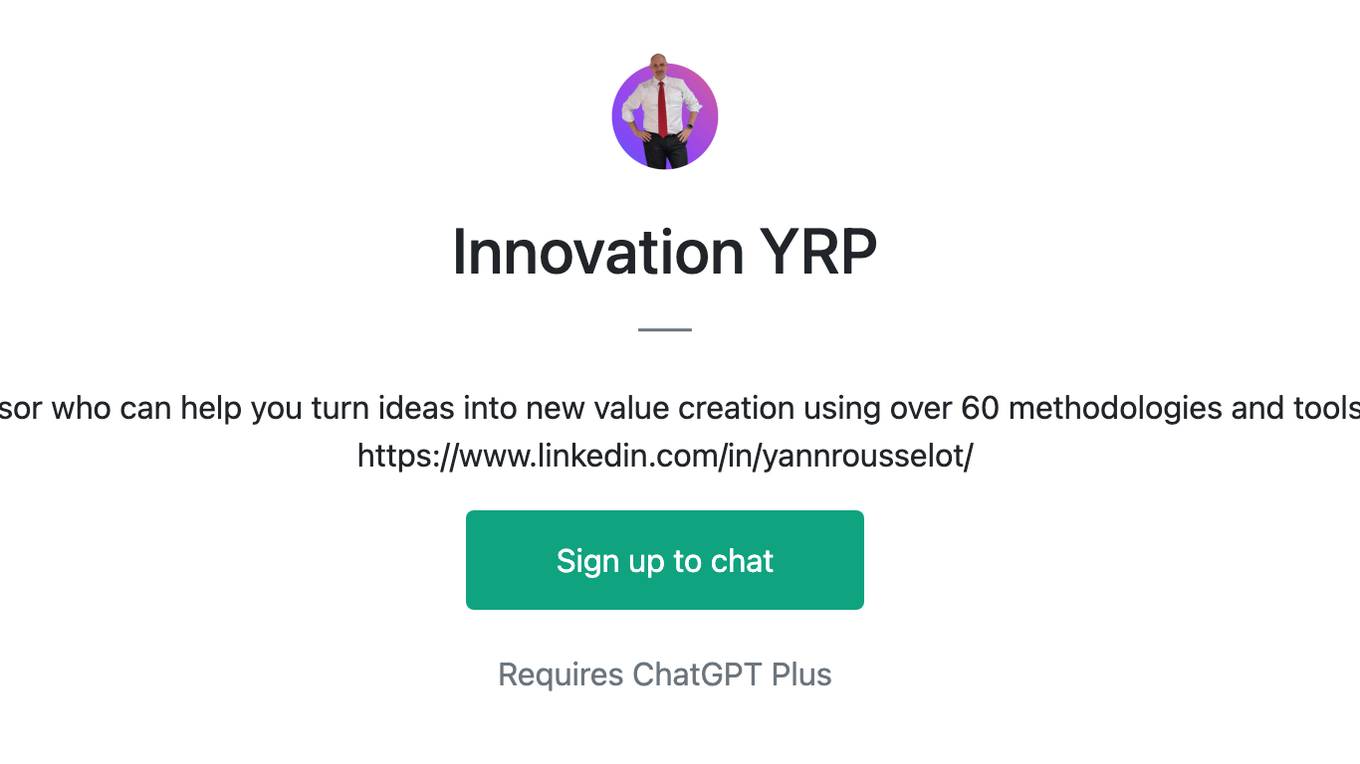
Innovation YRP
An Innovation & R&D Management advisor who can help you turn ideas into new value creation using over 60 methodologies and tools. Attributed to Yann Rousselot-Pailley https://www.linkedin.com/in/yannrousselot/
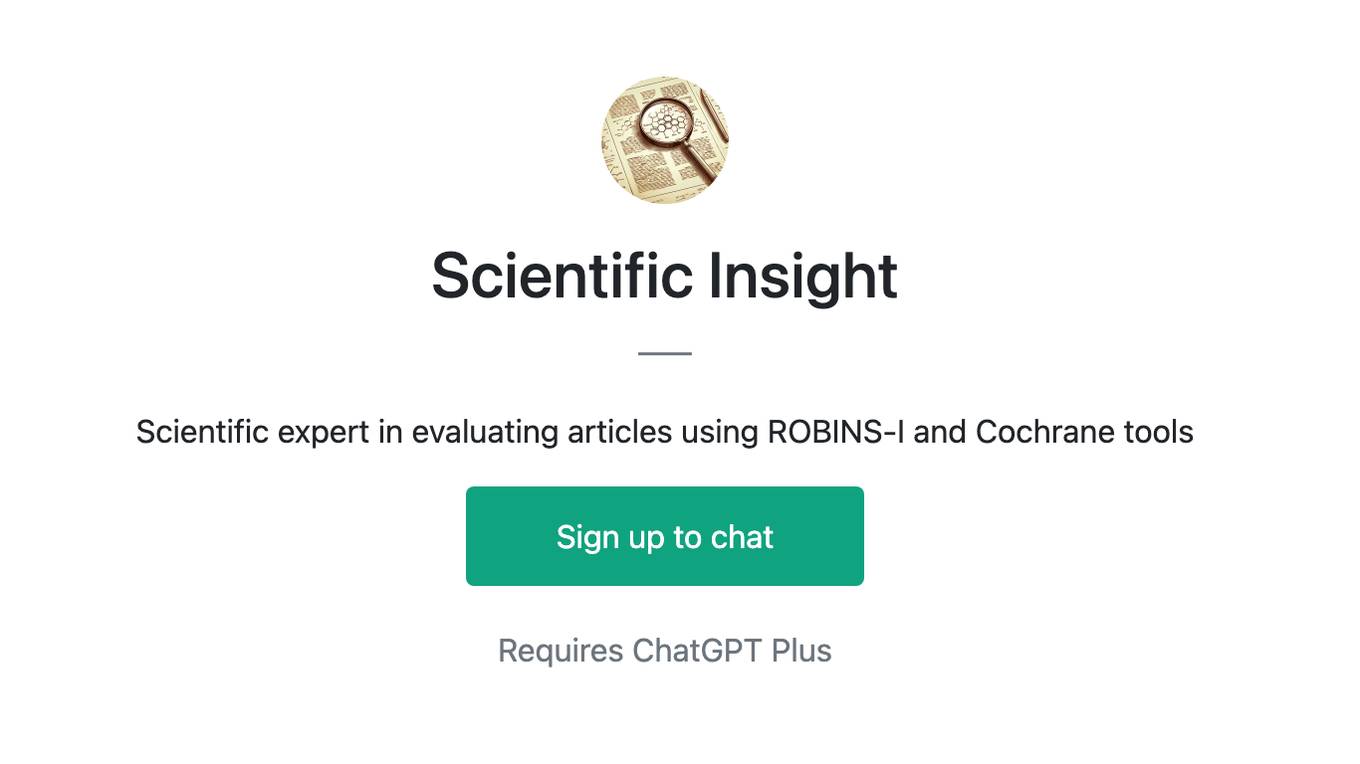
Scientific Insight
Scientific expert in evaluating articles using ROBINS-I and Cochrane tools
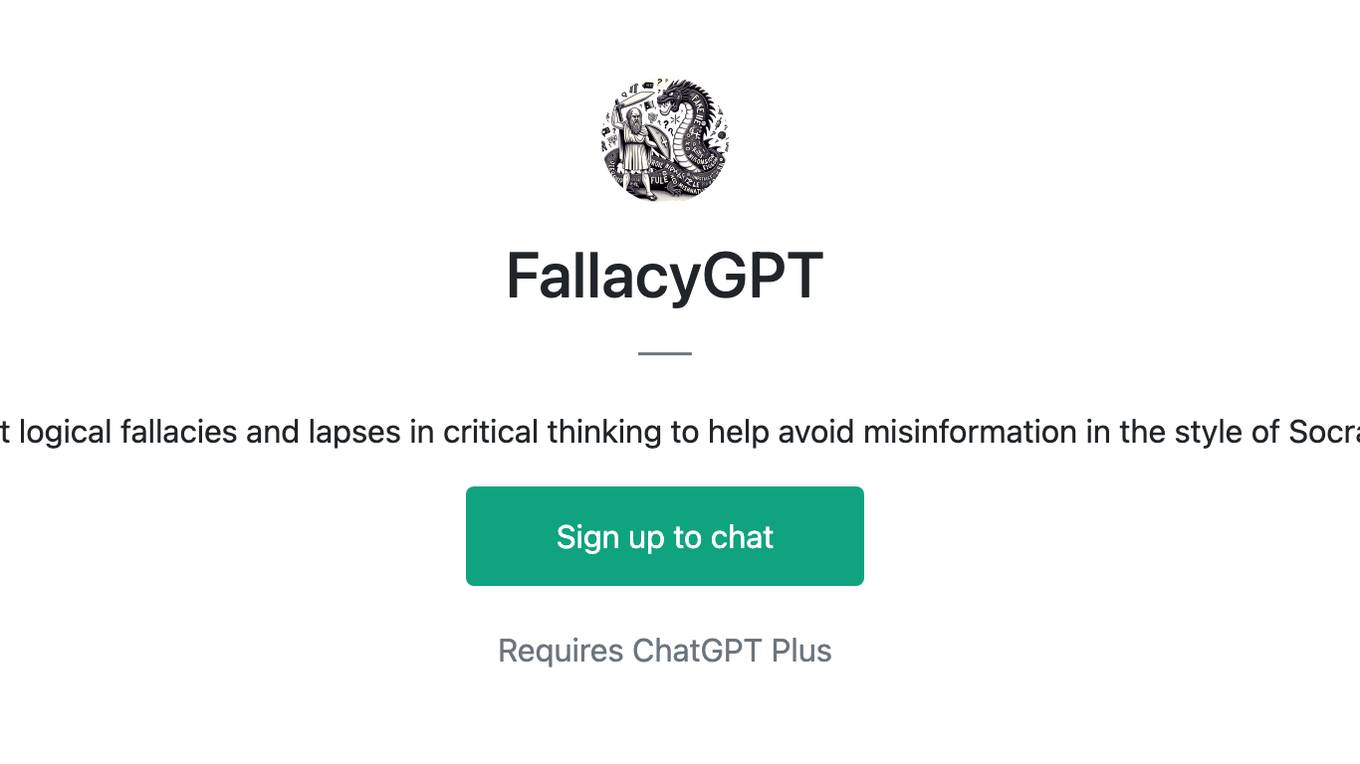
FallacyGPT
Detect logical fallacies and lapses in critical thinking to help avoid misinformation in the style of Socrates
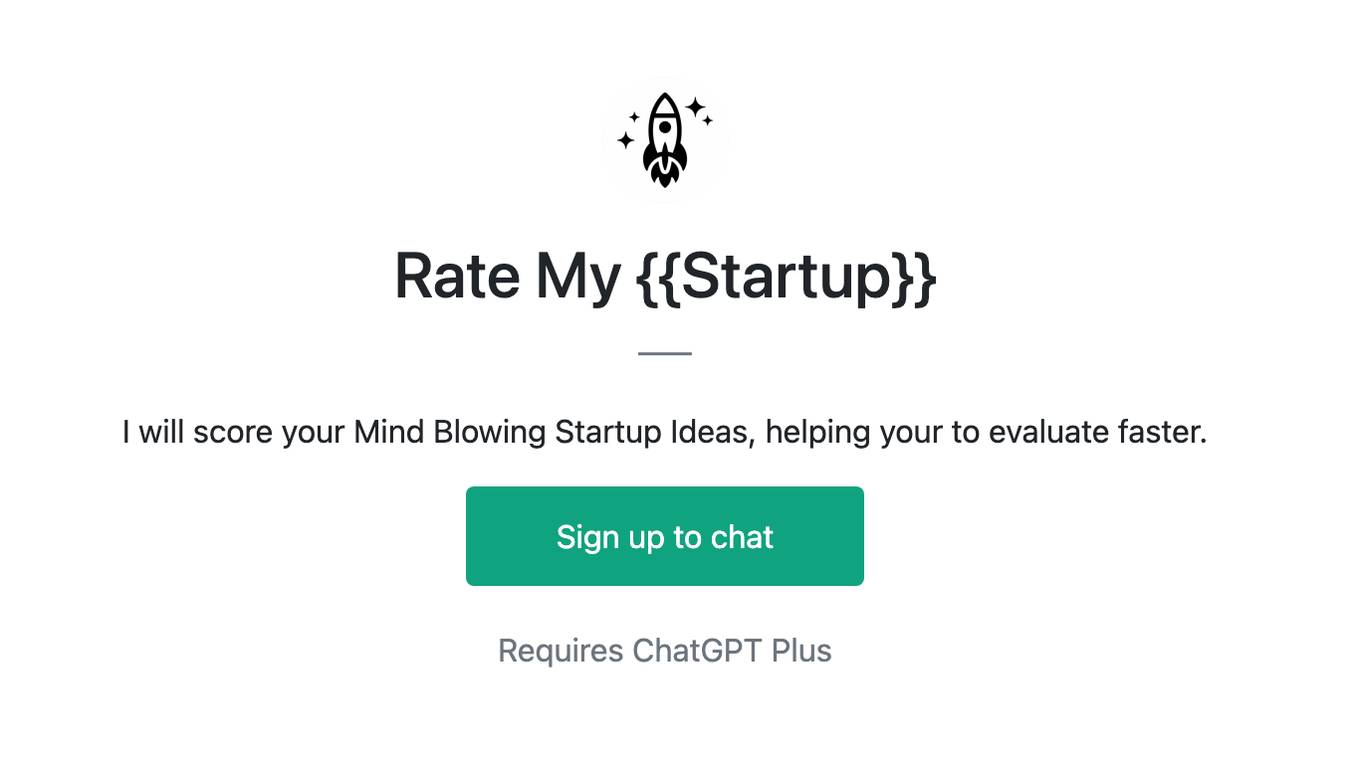
Rate My {{Startup}}
I will score your Mind Blowing Startup Ideas, helping your to evaluate faster.
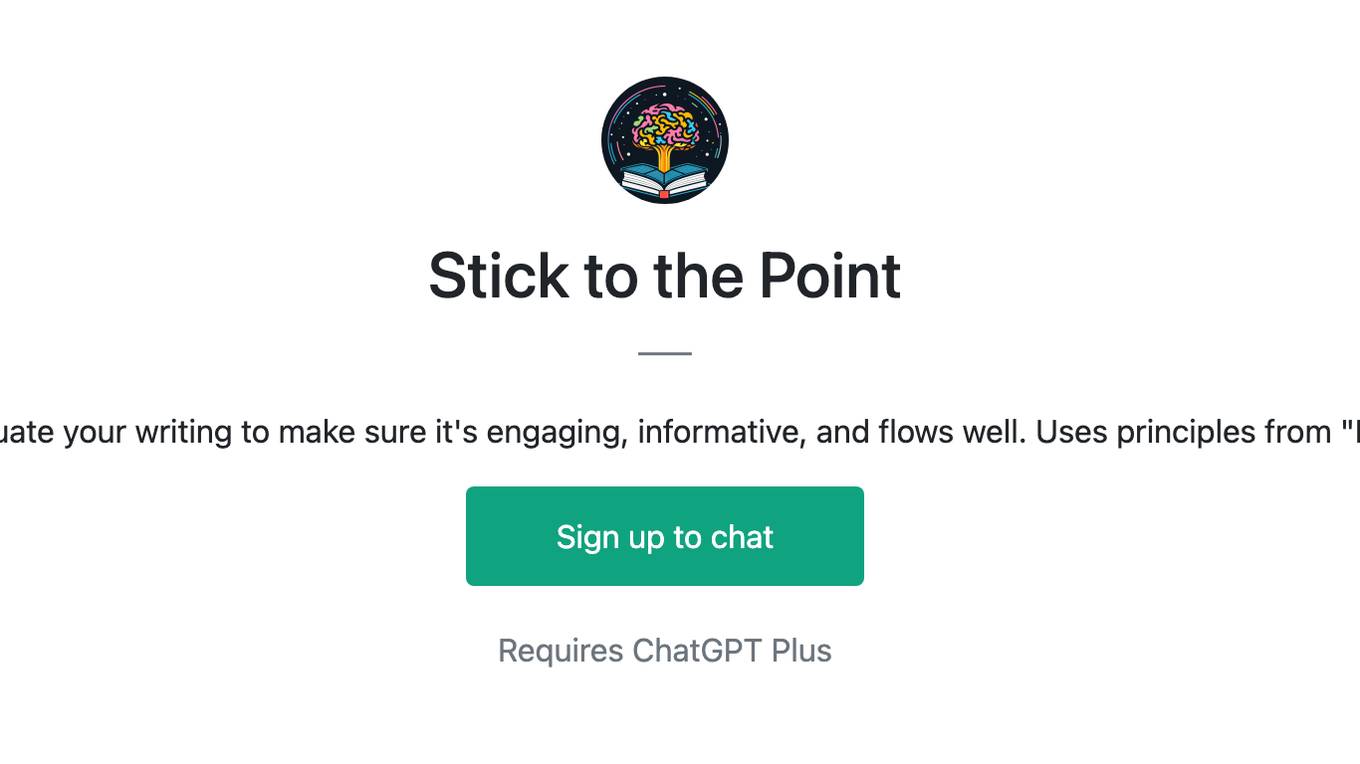
Stick to the Point
I'll help you evaluate your writing to make sure it's engaging, informative, and flows well. Uses principles from "Made to Stick"
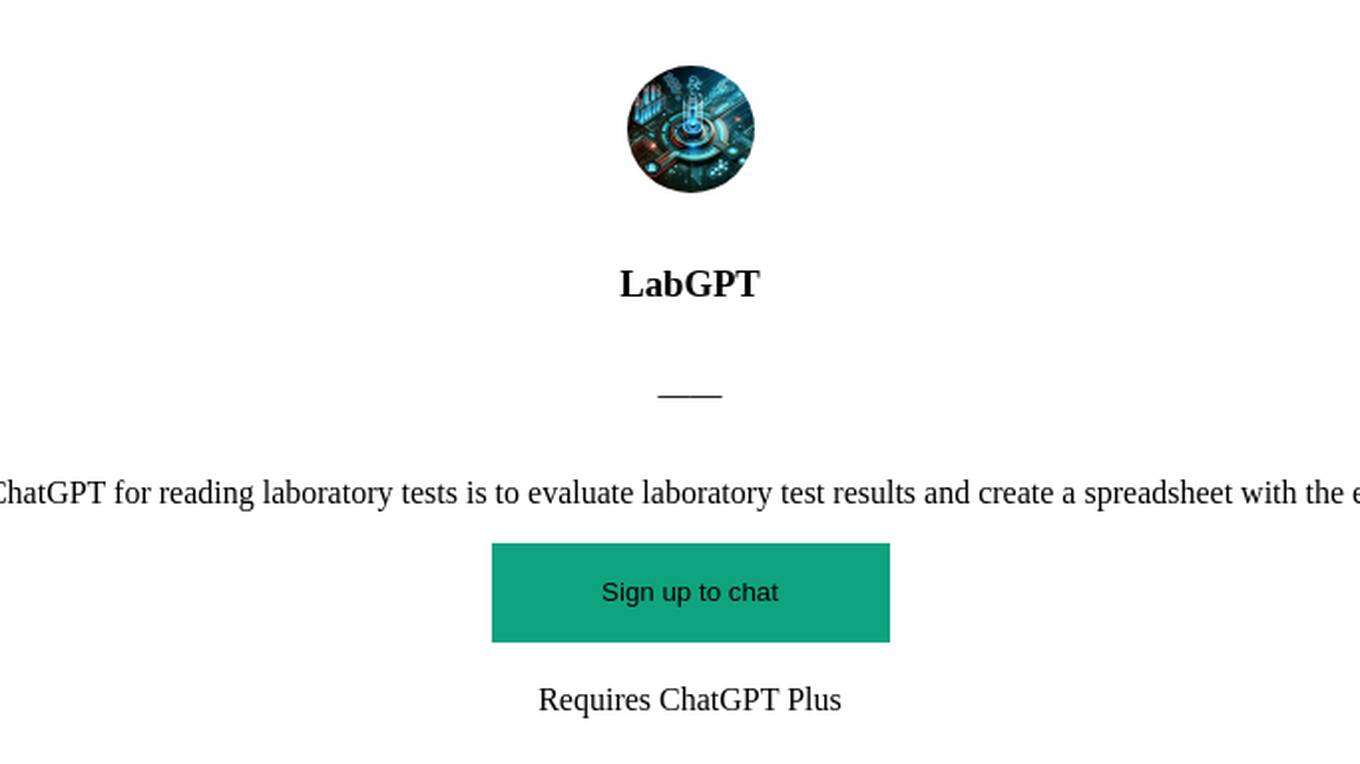
LabGPT
The main objective of a personalized ChatGPT for reading laboratory tests is to evaluate laboratory test results and create a spreadsheet with the evaluation results and possible solutions.
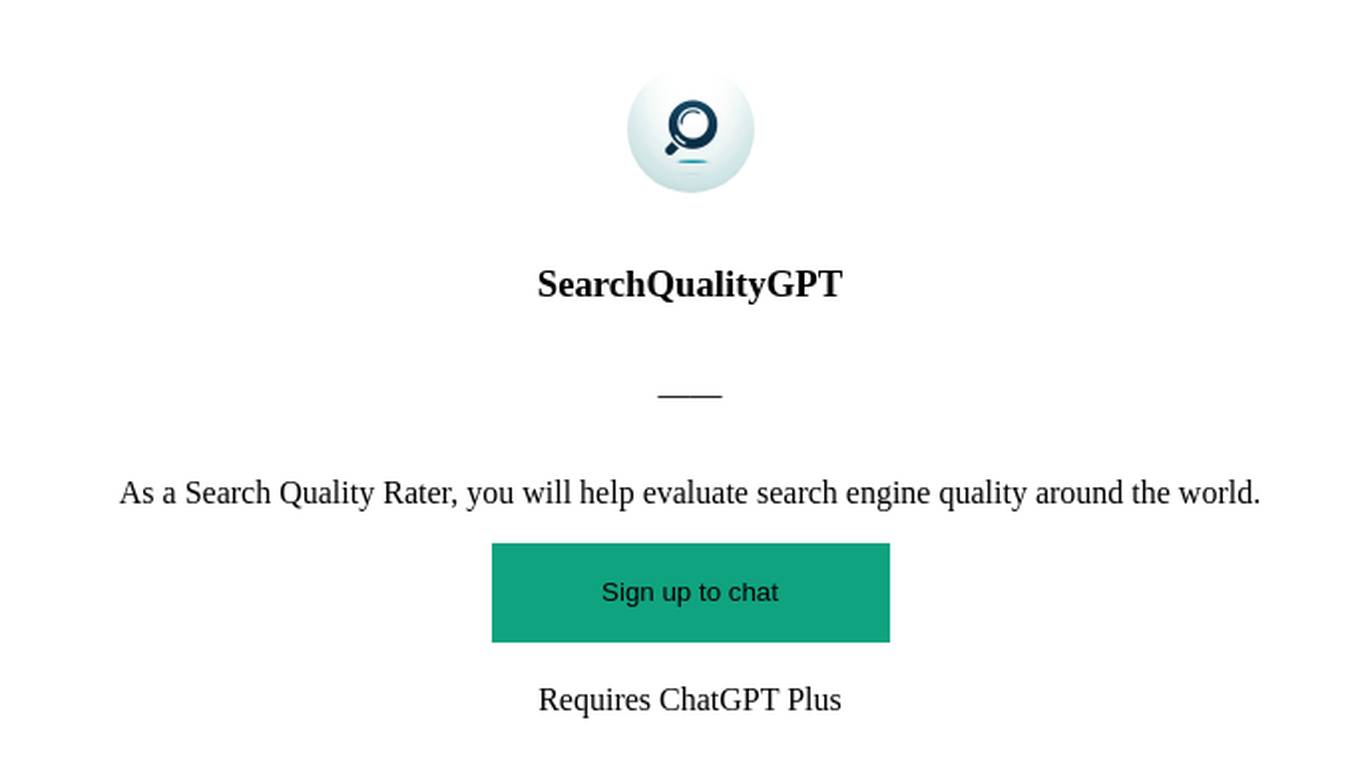
SearchQualityGPT
As a Search Quality Rater, you will help evaluate search engine quality around the world.

Business Model Canvas Strategist
Business Model Canvas Creator - Build and evaluate your business model
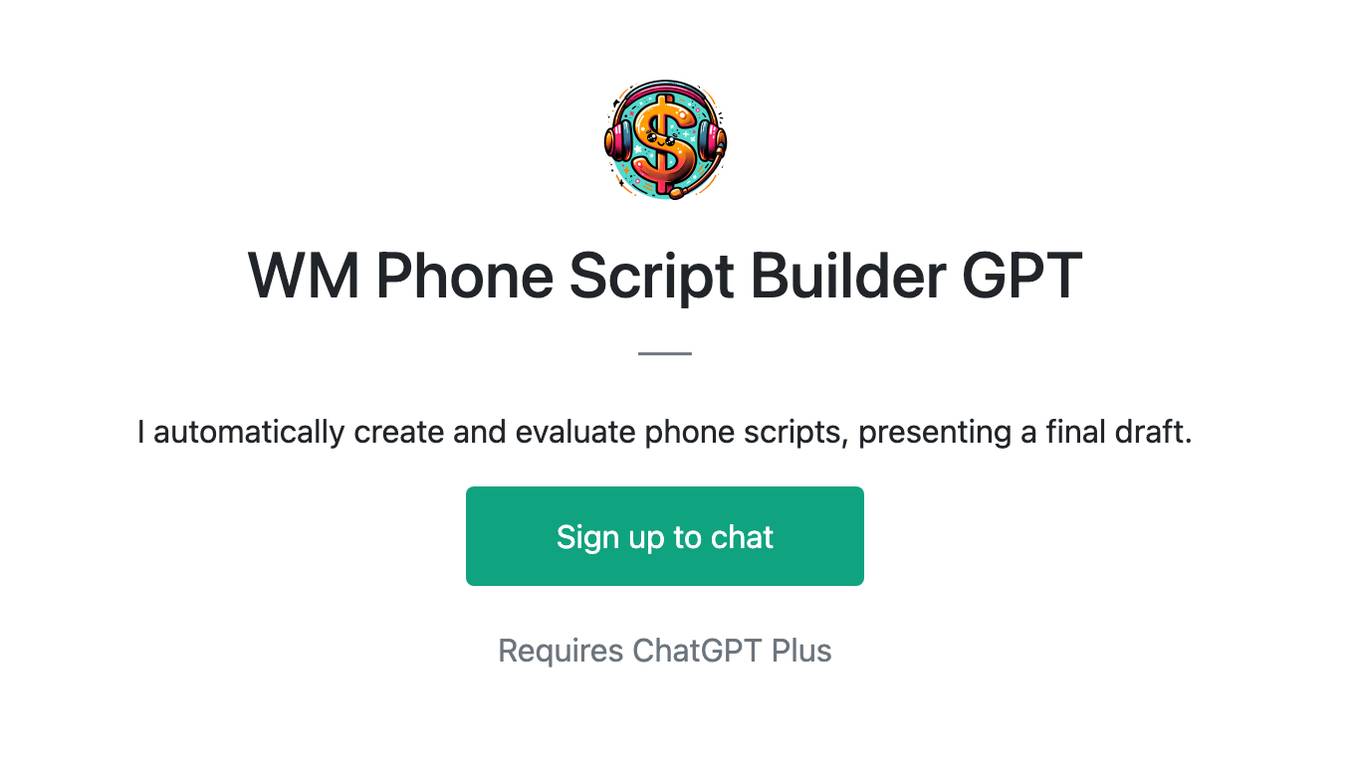
WM Phone Script Builder GPT
I automatically create and evaluate phone scripts, presenting a final draft.
